#New Jersey State Prison
Text
Alphonse Brengard. Justice delayed, but not denied.
When New York cop-killer Alphonse Brengard walked his last mile at Sing Sing on September 6, 1934 it may have been with a firm sense of time and his crimes having finally caught up with him. Brengard died for a murder effectively committed years before, but he was not to wait in Sing Sing’s infamous ‘Death House’ for very long. After evading the law for several years after the shooting, Brengard…

View On WordPress
#Alphonse Brengard#Anna Antonio#appeal#capital punishment#clemency#death penalty#Eva Coo#Governor Herbert Lehman#Iron Mike Malloy#Judd Gray#Leonard Scarnici#Mad Dog Coll#Nassau County#New Jersey#New Jersey State Prison#New York#Patrolman John Kennedy#Robert Greene Elliott#Ruth Snyder#Sing Sing#State Electrician#Trenton#true crime
0 notes
Photo

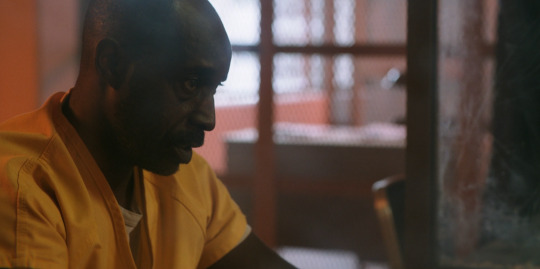


Smile
Parker Finn. 2022
Prison
52 Rahway Ave, Elizabeth, NJ 07201, USA
See in map
See in imdb
#parker finn#smile#sosie bacon#rob morgan#prison#elizabeth#new jersey#united states#movie#cinema#film#location#google maps#street view#2022
9 notes
·
View notes
Text
Desperately need a fic from a police officer’s pov and they watch SuperBat interactions bc like all the cops either hate or love Bats, but are still kinda terrified of him, but ofc Supes is all sunshine and smiles and “He’s my best friend y’all!” And they KNOW bats probably totally has kryptonite and an attitude worse than the devil.
So they end up in a situation where they’re working together and Batman in taking with the police and Superman’s standing behind him waving and smiling at everyone while Batman is giving single-word or just huffs for answers. And then Superman freezes and cocks his head and to everyone’s surprise grabs Batman by the shoulder and whispers something in his ear and then what’s more surprising is Batman doesn’t even mind as he wraps his own arm around Supes and then they’re gone in a blur of blue and Black. All the cops are just left standing there like 🧍♂️shocked bc Bats didn’t mind Supes touching him.
Or another instance where it’s after this big battle in Gotham and it’s with whatever villain but Superman is there too and the villain had kryptonite. Anyways so after the battle Bats is talking to the police and handing over the villain and Superman comes over after talking to the civilians, picks Bats up by the scruff mid sentence politely nods to the officers he was talking too, and moves him a couple feet away and just starts yelling at Bats abt how stupid it is for him to run around jumping in the way of heavy blows EVEN if they have kryptonite and Bats just scoffs and turns his head away and all the police on the area watch as Superman and Batman argue about how stupid it is to risk your life to save the other (they both did it) completely oblivious to their audience and the police whose POV it’s in just thinks “god they sound like a married couple. Wouldn’t it be crazy if the two of the worlds greatest hero’s were actually a couple lmao. But that’s crazy they’re just really good friends”
Gordon watched all this trying not to blow his fuse bc yes, Batman does need to be yelled at, and yes, he does need to prioritize his safety more, but NO, you don’t need to be having your lovers quarrel in front of the whole damn GCPD.
Or in another instance Batman racks up a bunch of charges on him for whatever reason and the GCPD by luck manages to arrest him and so here comes Superman trying to bail his partner(in more ways than one) out of prison and the police are like “we’re really sorry Mr. Superman sir but we can’t legally do that” and Supes goes “what the hell did he even do” and so the officer goes “Property Damage, unlawful violence, arson, punched a cop in the face and broke his nose, caught carrying weed which is illegal in the state of New Jersey, multiple -and I mean multiple- unpaid speeding tickets. Oh, and the DMV wanted us to talk to him about his unregistered Batmobile and Batbike.”and Supes is about to cry as he quietly asks “Okay, so how much is bail” And the officer looks away and mumbled “sixteen grand” and Supes gasps and cries out “I don’t get paid enough for sixteen grand!!”
However thirty minutes later Supes is back at the GCPD station shakily counting out bills bc he can’t use a check or card (obvi) sweating heavily and looking extremely pained. The cops don’t even ask where he got all those bills so quickly and just watch him and another 30minutes later Bats is out and Supes is shaking him by his shoulder shouting “so who’s gonna lag me back!! Who’s gonna reimburse me for for 16k?? Whose gonna apologize for the heart palpitations you gave me?? Whose gonna apologize for all the gray hairs this is going to give me?? You’re giving me gray hairs all the time B!! I can’t do this!!” And Batman just sighs and pats Superman on the back as they walk out of the station and Superman is mumbling about bank credit and loans and how bad he looks with wrinkle lines and gray hair sounding like he’s about to cry.
Meanwhile the police try not to loose their minds throughout this whole interaction and Gordon’s just staring at the door blankly smoking a cigar and the police whose POV it’s in looks at the cigar a little bit closer and goes “That smells like weed” and Gordon looks at her and just says “I feel for Superman a bit more than I want to”
558 notes
·
View notes
Photo





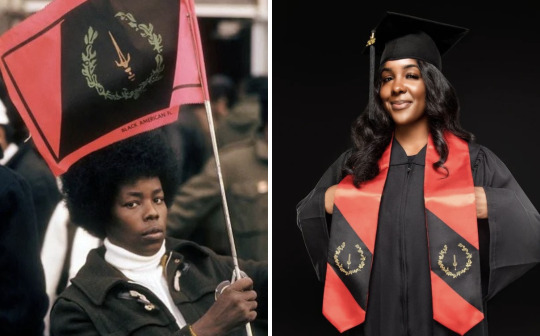
Juneteenth is a Black American holiday.
We call Juneteenth many things: Black Independence Day, Freedom Day, Emancipation Day, Jubilee Day. We celebrate and honor our ancestors.
December 31 is recognized as Watch Night or Freedom’s Eve in Black American churches because it marks the day our enslaved ancestors were awaiting news of their freedom going into 1863. On January 1, 1863, President Lincoln issued the Emancipation Proclamation. But all of the ancestors wouldn’t be freed until June 19, 1865 for those in Galveston, Texas and even January 23, 1866 for those in New Jersey (the last slave state). (It’s also worth noting that our people under the Choctaw and Chickasaw Nations wouldn’t be freed until April 28, 1866 and June 14, 1866 for those under the Cherokee Nation by way of the Treaties.)
Since 1866, Black Americans in Texas have been commemorating the emancipation of our people by way of reading the Emancipation Proclamation and coming together to have parades, free festivities, and later on pageants. Thereafter, it spread to select states as an annual day of commemoration of our people in our homeland.
Here’s a short silent video filmed during the 1925 Juneteenth celebration in Beaumont, Texas:
youtube
(It’s also worth noting that the Mascogos tribe in Coahuila, Mexico celebrate Juneteenth over there as well. Quick history lesson: A total of 305,326 Africans were shipped to the US to be enslaved alongside of American Indians who were already or would become enslaved as prisoners of war, as well as those who stayed behind refusing to leave and walk the Trail of Tears to Oklahoma. In the United States, you were either enslaved under the English territories, the Dutch, the French, the Spanish, or under the Nations of what would called the Five “Civilized” Native American Tribes: Cherokee, Creek (Muscogee), Chickasaw, Choctaw, and Seminoles. Mascogos descend from the Seminoles who escaped slavery during the Seminole Wars, or the Gullah Wars that lasted for more than 100 years if you will, and then settled at El Nacimiento in 1852.)
We largely wave our red, white and blue flags on Juneteenth. These are the only colors that represent Juneteenth. But sometimes you may see others wave our Black American Heritage flag (red, black, and gold).
Juneteenth is a day of respect. It has nothing to do with Africa, diversity, inclusion, immigration, your Pan-African flag, your cashapps, nor your commerce businesses. It is not a day of “what about” isms. It is not a day to tap into your inner colonizer and attempt to wipe out our existence. That is ethnocide and anti-Black American. If you can’t attend a Black American (centered) event that’s filled with education on the day, our music, our food and other centered activities because it’s not centered around yours…that is a you problem. Respect our day for what and whom it stands for in our homeland.
Juneteenth flag creator: “Boston Ben” Haith
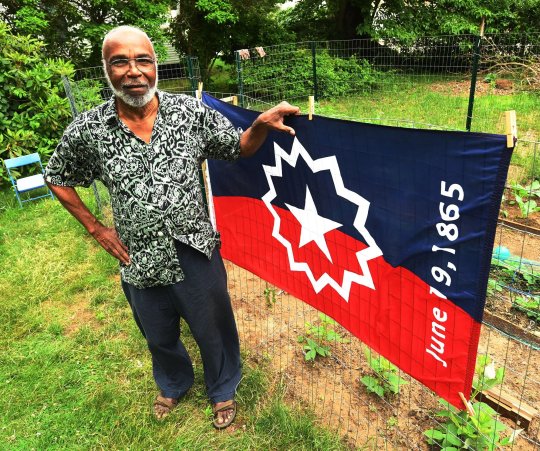
It was created in 1997. The red, white and blue colors represent the American flag. The five-point star represents the Lone State (Texas). The white burst around the star represents a nova, the beginning of a new star. The new beginning for Black Americans.
Black American Heritage Flag creators: Melvin Charles & Gleason T. Jackson

It was created in 1967, our Civil Rights era. The color black represents the ethnic pride for who we are. Red represents the blood shed for freedom, equality, justice and human dignity. Gold fig wreath represents intellect, prosperity, and peace. The sword represents the strength and authority exhibited by a Black culture that made many contributions to the world in mathematics, art, medicine, and physical science, heralding the contributions that Black Americans would make in these and other fields.

SN: While we’re talking about flags, I should note that Grace Wisher, a 13-year-old free Black girl from Baltimore helped stitched the Star Spangled flag, which would inspire the national anthem during her six years of service to Mary Pickersgill. I ain’t even gon hold you. I never looked too far into it, but she prob sewed that whole American flag her damn self. They love lying about history here until you start unearthing them old documents.
In conclusion, Juneteenth is a Black American holiday. Respect us and our ancestors.
#juneteenth#juneteenth flag#black american history#black american culture#ben haith#black american heritage flag#melvin charles#gleason t jackson#grace wisher#american flag#mascogos#juneteenth 2023
1K notes
·
View notes
Text
1968 [Chapter 6: Athena, Goddess Of Wisdom]

Series Summary: Aemond is embroiled in a fierce battle to secure the Democratic Party nomination and defeat his archnemesis, Richard Nixon, in the presidential election. You are his wife of two years and wholeheartedly indoctrinated into the Targaryen political dynasty. But you have an archnemesis of your own: Aemond’s chronically delinquent brother Aegon.
Series Warnings: Language, sexual content (18+ readers only), violence, bodily injury, character deaths, New Jersey, age-gap relationships, drinking, smoking, drugs, pregnancy and childbirth, kids with weird Greek names, historical topics including war and discrimination, math.
Word Count: 5.2k
Let me know if you’d like to be tagged! 🥰
💜 All of my writing can be found HERE! 💜
Here at the midway point in our journey—like Dante stumbling upon the gates of the Inferno—would it be the right moment to review what’s at stake? Let’s begin.
It’s the end of August. The delegates of the Democratic National Convention in Chicago officially vote to name Aemond the party’s presidential candidate. His ascension is aided by 10,000 antiwar demonstrators who flood into the city and threaten to set it ablaze if Hubert Humphrey is chosen instead. At the end—in his death rattle—Humphrey begs to be Aemond’s running mate, one last humiliation he cannot resist. Humphrey is denied. Eugene McCarthy, dignity intact, boards a commercial flight to his home state of Minnesota without looking back.
Aemond selects U.S. Ambassador to France, Sargent Shriver, to be his vice president. Shriver is a Kennedy by marriage—his wife, JFK’s younger sister Eunice, just founded the Special Olympics—and has previously headed the Office of Economic Opportunity, the Peace Corps, and the Chicago Board of Education. He also served as the architect of the president’s “War on Poverty” before distancing himself from the imploding Johnson administration. Shriver is not a concession to fence-sitting moderates or Southern Dixiecrats, but an embodiment of Aemond’s commitment to unapologetic progressivism. Richard Nixon spends the weekend campaigning in his native California, a gold vein of votes like the mines settlers rushed to in 1848. George Wallace announces that he will run as an Independent. Racists everywhere rejoice.
Phase III of the Tet Offensive is underway in Vietnam; 700 American soldiers have been killed this month alone. Riots break out in military prisons where the U.S. Army is keeping their deserters. The North Vietnamese refuse to allow Pope Paul VI to visit Hanoi on a peace mission. President Johnson calls both Aemond and Nixon to personally inform them of this latest evidence of the communists’ unwillingness to negotiate in good faith. Daeron and John McCain remain in Hỏa Lò Prison. The draft swallows men like the titan Cronus devoured his own children.
In Eastern Europe, the Russians are crushing pro-democracy protests in the largest military operation since World War II as half a million troops roll into Czechoslovakia. In Caswell County, North Carolina, the last remaining segregated school district in the nation is ordered by a federal judge to integrate after years of stalling. On the Fangataufa Atoll in the South Pacific, France becomes the fifth nation to successfully explode a hydrogen bomb. In Mexico City, 300,000 students gather to protest the authoritarian regime of President Diaz Ordaz. In Guatemala, American ambassador John Gordon Mein is murdered by a Marxist guerilla organization called the Rebel Armed Forces. In Columbus, Ohio, nine guards are held hostage during a prison riot; after 30 hours, they’re rescued by a SWAT team.
The latest issue of Life magazine brings worldwide attention to catastrophic industrial pollution in the Great Lakes. The first successful multiorgan transplant is carried out at Houston Methodist Hospital. The Beatles release Hey Jude, the best-selling single of 1968 in the U.S., U.K., Australia, and Canada. NASA’s Apollo lunar landing program plans to launch a crewed shuttle next year, just in time to fulfill John F. Kennedy’s 1962 promise to put a man on the moon “before the end of the decade.” If this is successful, the United States will win the Space Race and prove the superiority of capitalism. If it fails, the martyred astronauts will join all the other ghosts of this apocalyptic age, an epoch born under bad stars.
The night sky glows with the ancient debris of the Aurigid meteor shower. From down here on Earth, Jupiter is a radiant white gleam, visible with the naked eye and admired since humans were making cave paintings and Stonehenge. But Io is a mystery. With a telescope, she becomes a dust mote entrapped by Jupiter’s gravity; to the casual observer, she doesn’t exist at all.
~~~~~~~~~~
What was it like, that very first time? It’s strange to remember. You’re both different people now.
It’s May, 1966. You and Aemond are engaged, due to be married in three short weeks, and if you get pregnant then it’s no harm, no foul. In reality, it will end up taking you over a year to conceive, but no one knows that yet; you are living in the liminal space between what you imagine your life will be and the cold blade of the truth. Aemond has brought you to Asteria for the weekend, an increasingly common occurrence. The Targaryens—minus one, that holdout prodigal son, always glowering from behind swigs of rum and clouds of smoke—have already begun to treat you like a member of the family. The flock of Alopekis yap excitedly and lick your shins. Eudoxia learns your favorite snacks so she can have them ready when you arrive.
One night Aemond takes your hand and leads you to Helaena’s garden, darkness turned to twilight in the artificial luminance of the main house. You can hear distant voices, chatter and laughter, and the Beatles’ Rubber Soul spinning on the record player in the living room like a black hole, gravity that not even light can escape when it is wrenched over the event horizon.
You’re giggling as Aemond pulls you along, faster and faster, weaving through pathways lined with roses and sunflowers and butterfly bushes. Your high heels sink into soft, fertile earth; the air in your lungs is cool and infinite. “Where are we going?”
And Aemond grins back at you as he replies: “To Olympus.”
In the circle of hedges guarded by thirteen gods of stone, Aemond unzips your modest pink sundress and slips your heels off your feet, kneeling like he’s proposing to you again. When you are bare and secretless, he draws you down onto the grass and opens you, claims you, fills you to the brim as the crystalline water of the fountain patters and Zeus hurls his lightning bolts, an eternal storm, unending war. It’s intense in a way it never was with your first boyfriend, a sweet polite boy who talked about feminist theory and followed his enlightened conscience all the way to Vietnam. This isn’t just a pleasant way to pass a Friday night, something to look forward to between differential equations textbooks and calculus proofs. With Aemond it’s a ritual; it’s something so overpowering it almost scares you.
“Aphrodite,” Aemond murmurs against your throat, and when you try to get on top he stops you, pins you to the ground, thrusts hard and deep, and you try not to moan too loudly as you surrender, his weight on you like a prophesy. This is how he wants you. This is where you belong.
Has someone ever stitched you to their side, pushing the needle through your skin again and again as the fabric latticework takes shape, until their blood spills into your veins and your antibodies can no longer tell the difference? He makes you think you’ve forgotten who you were before. He makes you want to believe in things the world taught you were myths.
But that was over two years ago. Now Aemond is not your spellbinding almost-stranger of a fiancé—shrouded in just the right amount of mystery—but your husband, the father of your dead child, the presidential candidate. You miss when he was a mirage. You miss what it felt like to get high on the idea of him, each taste a hit, each touch a rush of toxins to the bloodstream.
Seven weeks after your emergency c-section, you are healing. Your belly no longer aches, your bleeding stops, you can rejoin the living in this last gasp of summer. Ludwika takes you shopping and you pick out new swimsuits; you’ve gone up a size since the baby, and it shows no signs of vanishing. In the fitting room, Ludwika chain-smokes Camel cigarettes and claps when you show her each outfit, ordering you to spin around, telling you that there’s nothing like Oleg Cassini back in Poland. You plan to buy three swimsuits. Ludwika insists you get five. She pays with Otto’s American Express.
That afternoon at home in your blue bedroom, you get changed to join the rest of the family down by the pool, your first swim since Ari was born. You choose Ludwika’s favorite: a dreamy turquoise two-piece with flowing transparent fabric that drapes your midsection. You can still see the dark vertical line of where the doctors stitched you closed. Now you and Aemond match; he got his scar on the floor of the Breakers Hotel in Palm Beach, you earned yours at Mount Sinai Hospital in Manhattan. There are gold chains on your wrist and looped around your neck. Warm sunlight and ocean wind pours in through the open windows.
Aemond appears in the doorway and you turn to show him, proud of how you’ve pulled yourself together, how this past year hasn’t put you in an asylum. His right eye catches on your scar and stays there for a long time. Then at last he says: “You don’t have something else to wear?”
~~~~~~~~~~
It’s Labor Day, and Asteria has been descended upon by guests invited to celebrate Aemond’s nomination. The dining room table is overflowing with champagne, Agiorgitiko wine, platters of mini spanakopitas, lamb gyros, pita bread with hummus and tzatziki, feta cheese and cured meats, grilled octopus, baklava, and kourabiethes. Eudoxia is rushing around sweeping up crumbs and shooing tipsy visitors away from antique vases shipped here from Greece. Aemond’s celebrity endorsers include Sammy Davis Jr., Sonny and Cher, Andy Williams, Bobby Darin, Warren Beatty, Shirley MacLaine, Claudine Longet, and a number of politicians; but the most notable attendee is President Lyndon Baines Johnson, shadowed by Secret Service agents. He won’t be making any surprise appearances on the campaign trail for Aemond—in the present political climate, he would be more of a liability than an asset—but he has travelled to Long Beach Island tonight to offer his well-wishes. From the record player thrums Jimi Hendrix’s All Along The Watchtower.
When you finish getting ready and arrive downstairs, you spot Aegon: slouching in a velvet chair over a century old, hair shagging in his eyes, sipping something out of a chipped mug he clasps with both hands, flirting with a bubbly early-twenties campaign staffer. Aegon smiles and waves when he sees you. You wave back. And you think: When did he become the person I look for when I walk into a room?
Now Aemond is beside you in a blue suit—beaming, confident, his glass eye in place, a hand resting on your waist—and Aegon isn’t smiling anymore. He takes a gulp of what is almost certainly straight rum from his mug and returns his attention to the campaign staffer, his lady of the hour. You picture him undressing her on his shag carpet and feel disorienting, violent envy like a bullet.
Viserys is already fast asleep upstairs, but the rest of the family is out en masse to charm the invitees and pose for photographs. Alicent, Helaena, and Mimi—trying very hard to act sober, blinking too often—are chit-chatting with the other political wives. Otto is complaining about something to Criston; Criston is pretending to listen as he stares at Alicent. Ludwika is smoking her Camels and talking to several young journalists who are ogling her, enraptured. Fosco and Sargent Shriver are entertaining a group of guests with a boisterous, lighthearted debate on the merits of Italian versus French cuisine, though they agree that both are superior to Greek. The nannies have brought the eight children to be paraded around before bedtime. All Cosmo wants to do is clutch your hand and “help” you navigate around the living room, warning you not to step on the small, weaving Alopekis. When Mimi attempts to steal her youngest son away, he ignores her, and as she begins to make a scene you rebuke her with a harsh glare. Mimi retreats meekly. She has never argued with you, not once in over two years. You speak for Aemond, and Aemond is a god.
As the children are herded off to their beds by the nannies, Bobby Kennedy—presently serving as a New York senator despite residing primarily on his family’s compound in Massachusetts—approaches to congratulate Aemond. His wife Ethel is a tiny, nasally, scrappy but not terribly bright woman, five months pregnant with her eleventh child, and you have to get away from her like a hand pulled from a hot stove.
“You know, I was considering running,” Bobby says to Aemond, chuckling, good-natured. “But when I saw you get in the race, I thought better of it! Maybe I’ll give it a go in ’76, huh?”
“Hey, kid, what a tough year you’ve had,” Ethel tells you, patting your forearm. You can’t tear your eyes from her small belly. She has ten living children already. I couldn’t keep one. What kind of sense does that make? “We’re real sorry for your trouble, aren’t we, Bobby?”
Now he is nodding somberly. “We are. We sure are. We’ve been praying for you both.”
Aemond is thanking them, sounding touched but entirely collected. You manage some hurried response and then excuse yourself. Your hands are shaking as you cross the room, not really seeing it. You walk right into Lady Bird Johnson. She takes pity on you; she seems to perceive how rattled you are. “Oh Lyndon, look, it’s just who we were hoping to speak to! The next first lady of the United States. And how beautiful you are, just radiant. How do you keep your hair so perfect? That glamorous updo. You never have a single strand out of place.” Lady Bird lays a palm tenderly on your bare shoulder. She has an unusual, angular face, but a wise sort of compassion that only comes from suffering. Her husband is an unrepentant serial cheater. “I’ll make you a list of everything you need to know about the White House. All the quirks of the property, and the hidden gems too!”
“You’re so kind. We’ll see what happens in November…”
“Good evening, ma’am,” President Johnson says, smiling warmly. He’s an ugly man, but there’s something hypnotic that lives inside him and shines through his eyes like the blaze of a lighthouse. He pulls you in through the dark, through the storm; he promises you answers to questions you haven’t thought of yet. LBJ is 6’4 and known for bullying his political adversaries with the so-called “Johnson Treatment”; he leans in and makes rapid-fire demands until they forget he’s not allowed to hit them. “I have to tell you frankly, I don’t envy anyone who inherits that den of rattlesnakes in Washington D.C.”
“Lyndon, don’t frighten her,” Lady Bird scolds fondly.
“Everyone thinks they know what to do about Vietnam,” LBJ plods onwards. “But it’s a damned if you do, damned if you don’t clusterfuck. If you keep fighting, they call you a murderer. But if you pull the troops out and South Vietnam falls to the communists, every single man lost was for nothing, and you think the families will stand for that? Their kid in a body bag, or his legs blown off, or his brain scrambled? There’s no easy answer. It’s a goddamn bitch of a quagmire.”
Lady Bird offers you a sympathetic smirk. Sorry about all this unpleasantness, she means. When he gets himself worked up, I can’t stop him. But you find yourself feeling sorry for President Johnson. It will be difficult for him to learn how to fade into disgraced obscurity after once being so omnipotent, so beloved. Reinvention hurts like hell: fevers raging, bones mending, healing flesh that itches so ferociously you want to claw it off.
LBJ gives Lady Bird a look, quick but meaningful. She acquiesces. This has happened a thousand times before. “It was so nice talking to you, dear,” she tells you, then crosses the living room to pay her respects to Alicent.
The president steps closer, looming, towering. The Johnson Treatment?? you think, but no; he isn’t trying to intimidate you. He’s just curious.
“Do you know what Aemond’s plan is for ‘Nam?” LBJ asks, eyes urgent, voice low. “I’m sure he has one. He’s sworn to end the draft as soon as he gets into office, but how is he going to make sure the South Vietnamese can fend off the North themselves? We’re trying to train the bastards, but if we left they’d fold in months. It would be the first war the U.S. ever lost. Does he understand that?”
“He doesn’t really discuss it with me.” That’s true; you know his policies, but only because they are a constant subject of conversation within the family, something you all breathe like oxygen.
“We can’t let Nixon win,” LBJ continues. “It’s mass suicide to leave the country in his hands. The man can’t hold his liquor anymore, getting robbed by Kennedy in ’60 broke something in him. He gets sloshed and shoves his aids around, makes up conspiracies in his head. He’s a paranoid little prick. He’ll surveille the American people. He’ll launch a nuke at Moscow.”
You honestly don’t know what he expects you to say. “I’ll pass the message along to Aemond.”
“People love you, Mrs. Targaryen.” LBJ watching you closely. “Believe it or not, they used to love me too. But I still remember how to play the game. You’re the only reason Aemond is leading the polls in Florida. You can get him other states too. Jack needed Jackie. Aemond needs you. And you’ve had tragedies, and that’s a damn shame. But don’t you miss an opportunity. You take every disappointment, every fucked up cruelty of life and find a way to make it work for you. You pin it to your chest like a goddamn medal. Every single scar makes you look more mortal to those people going to the ballot box in November. You want them to be able to see themselves in you. It helps the mansions and the millions go down smoother.”
“President Johnson!” Aegon says as he saunters over, huge mocking grin. He thumps a closed fist against the Texan’s broad chest; the Secret Service agents standing ten feet away observe this sternly. “How thoughtful of you to be here, taking time out of your busy schedule, squeezing us in between war crimes.”
“The mayor of Trenton,” LBJ jabs.
“The butcher of Saigon.”
Now the president is no longer amused. “You’ve never accomplished anything in your whole damn life, son. Your obituary will be the size of a postage stamp. I’m looking forward to reading it someday soon.” He leaves, rejoining Lady Bird at the opposite end of the room.
You frown at Aegon, disapproving. You’re dressed in a sparkling, royal blue gown that Aemond chose. “That was unnecessary.”
Aegon is wearing an ill-fitting green shirt—half the buttons undone—khaki pants, and tan moccasins. “I just did you a favor.”
“What happened to your new girlfriend? Shouldn’t she be getting railed in your basement right now? Did she have a prior commitment? Did she have a spelling test to study for? Those can be tricky, such complex words. Juvenile. Inappropriate. Infidelity.”
“You know what he brags about?” Aegon says, meaning LBJ. “That he’s fucked more women by accident than John F. Kennedy ever did on purpose.”
“That sounds…logistically challenging.”
“He’s a lech. He’s a freak. He tells everyone on Capitol Hill how big his cock is. He takes it out and swings it around during meetings.”
“And that’s all far less than admirable, but he’s not going to do something like that around me.”
“How do you know?”
“Because he’s not an idiot,” you say impatiently. “He was perfectly civil. And I was getting interesting advice.”
Aegon rolls his eyes, exasperated. “Yeah, okay, I’m sorry I crashed your cute little pep talk with Lyndon Johnson, the most hated man on the planet.”
“I guess you can’t stop Aemond from touching me, so you have to terrorize LBJ instead.”
“Shut the fuck up,” Aegon hisses, and his venom stuns you. And now you’re both trapped: you loosed the arrow, he proved you hit the mark. He’s flushing a deep, mortified red. Your guts are twisting with remorse.
“Aegon, wait, I didn’t mean—”
He whirls and storms off, shoving his way through the crowd. People glare at him as they clutch their glasses and plates, sighing in that What else do you expect from the worthless son? sort of way. You’re still gaping blankly at the place where Aegon stood when Aemond finds you, snakes a hand around the back of your neck, and whispers through the painstakingly-arranged wisps of hair that fall around your ear: “Follow me.”
It’s not a question. It’s a command. You trail him through the living room, into the foyer, and through the front door, not knowing what he wants. Outside the moon is a sliver; the light from the main house makes the stars hard to see. “Aemond, you’ll never believe the conversation I just had with LBJ. He really unloaded, I think the stress is driving him insane. I have to tell you what he said about—”
“Later.” And this is jarring; Aemond doesn’t put anything before strategy. He grabs your hand as he turns into Helaena’s garden, and only then do you understand what he wants. Instinctively, your legs lock up and your feet stop moving. Aemond tugs you onward. He wants it to be like the very first time. He intends to start over with you, the dawning of a new age in the dead of night.
Hidden in the circle of hedges, he takes your face roughly in his hands and kisses you, drinks you down like a vampire, consumes you like wildfire. But your skull echoes with panic. I don’t want him touching me. I don’t want another child with him. “Aemond…”
He doesn’t hear you, or acts like he doesn’t, or mistakes it for a murmur of desire, or chooses to believe it is. He has you down on the grass under the vengeful gaze of Zeus, the fountain splashing, the sounds of the house a low foreign drone. He yanks off your panties, but he doesn’t want you naked like he always did before. He pushes the hem of your shimmering cobalt gown up to your hips and unbuckles his trousers. And you realize as he’s touching you, as he’s easing himself into you: He doesn’t want to have to look at my scar.
You can’t ignore him, you can’t pretend it’s not happening. He’s too big for that. It’s a biting fullness that demands to be felt. So you kiss him back, and knot your fingers in his short hair like you used to, and try to remember the things you always said to him before. And when Aemond is too absorbed to notice, you look away from him, from the statue of Zeus, and peer up into the stone face of Athena instead: the goddess who never married and who knows the answer to every question.
“I love you,” Aemond says when it’s over, marveling at the slopes of your face in the dim ethereal light. “Everything will be right again soon. Everything will be perfect.”
You conjure up a smile and nod like you believe him.
“What did LBJ say?”
“Can I tell you later tonight? After the party, maybe? I just need a few minutes.”
“Of course.” And now Aemond pretends to be patient. He buckles his belt and returns to the main house, his blood coursing with the possibilities only you can make real, his skin damp with your sweat.
For a while—ten minutes, twenty minutes—you lie there on the cool grass wondering what it was like for all those mortals and nymphs, being pinned down by Zeus and then having Hera try to kill them afterwards, raising ill-fated reviled bastards they couldn’t help but love. What is heaven if the realm of the immortals is so cruel? Why does the god of justice seem so immune to it?
When at last you rise and walk back towards the house, you find Mimi at the edge of the garden. She’s on her knees and retching into a rose bush; she’s cut her face on the thorns, but she hasn’t noticed yet. She’s groaning; she seems lost.
You reach for her, gripping her bony shoulders. “Mimi, here, let’s get you upstairs…”
“No,” she blubbers, tears streaming down her scratched cheeks. “Just go away. Leave me.”
“Mimi—”
“No!” she roars, a mournful hemorrhage as she slaps your hands until you release her.
“You don’t have to be this way,” you tell her, distraught. “You can give up drinking. We’ll help you, me and Fosco and Ludwika. You can start over. You can be healthy and present again, you can live a real life.”
Mimi stares up at you, her grey eyes glassy and bloodshot but with a vicious, piercing honesty. “My husband hates me. My kids don’t know I exist. What the hell do I have to be sober for?”
You weren’t expecting this. You don’t know what to say. “We can help make the world better.”
“The world would be better without me in it.”
Then Mimi curls up on the grass under the rose bush, and stays there until you return with Fosco to drag her upstairs to her empty bed.
~~~~~~~~~~
The next afternoon, you’re lying on a lounge chair by the pool. Tomorrow the family will leave Asteria and embark upon a vigorous campaign schedule that will continue, with very few breaks, until Election Day on Tuesday, November 5th. The children are splashing and shrieking in the pool with Fosco, but you aren’t looking at them. You’re staring across the sun-drenched emerald lawn at the Atlantic Ocean. You’re envisioning all the bones and splinters of sunken ships that must litter the silt of the abyss; you’re thinking that it’s a graveyard with no headstones, no memory. Your swimsuit is a red one-piece. Your eyes are shielded by large black Ray Bans aviator sunglasses. Your gaze flicks up to the cloudless blue sky, where all the stars and planets are invisible.
Jupiter has nearly a hundred moons; the largest four were discovered by Galileo in 1610. Europa is a smooth white cosmic marble with a crust of ice, beautiful, immaculate. Ganymede, the largest moon in our solar system and the only satellite with its own magnetic field, is rumored to have a vast underground saltwater ocean that may contain life. Callisto is dark and indomitable, riddled with impact craters; because of her dynamic atmosphere and location beyond Jupiter’s radiation belts, she is considered the best location for possible future crewed missions to the Jovian system. But Io is a wasteland. She has no water and no oxygen. Her only children are 400 active volcanoes, sulfur plumes and lava flows, mountains of silicate rock higher than Mount Everest, cataclysmic earthquakes as her crust slips around on a mantle of magma. Her daily radiation levels are 36 times the lethal limit for humans. If Hades had a home in our corner of the galaxy, it would be Io. She glows ruby and gold with barren apocalyptic fury. You can feel yourself turning poisonous like she is. You can feel your skin splitting open as the lava spills out.
Aegon trots out of the house—red swim trunks, cheap red plastic sunglasses, no shirt, a beach towel slung around his neck, flip flops—and kicks your chair. “Get up. We’re going sailing.”
“I don’t want to talk to anybody.”
“Great, because I’m not asking you to talk. I’m telling you to get in my boat.”
You don’t reply. You don’t think you can without your voice cracking. Aegon crouches down beside your chair and pushes your sunglasses up into your Brigitte Bardot-inspired hair so he can see your face. Your eyes are pink, wet, desperately sad. Deep troubled grooves appear in his forehead as he studies you. Gently, wordlessly, he pats your cheek twice and lowers your sunglasses back over your eyes. Then he stands up again and offers you his hand.
“Let’s go,” Aegon says, softly this time. You take his hand and follow him down to the boathouse.
Five vessels are currently kept there. Aegon’s sailboat is a 25-foot Wianno Senior sloop, just roomy enough for a few passengers. He’s had it since long before you married into the Targaryen family. It is white with hand-painted gold accents; the name Sunfyre adorns the stern. He unmoors the boat, pushes it out into the open water, and raises the sails.
You glide eastbound over the glittering crests of waves, slowly at first, then faster as the sails catch the wind. Aegon has one hand on the rudder, the other grasping the ropes. And the farther you get from shore, the smaller Asteria seems, and the Targaryen family, and the presidential election, and the United States itself. Now all that exists is this boat: you, Aegon, the squawking gulls, the school of mackerel, the ocean. The sun beats down; the breeze rips strands of your hair free. The battery-powered record player is blasting White Room by Cream. When you are far enough from land that no journalists would be able to get a photo, Aegon takes two joints and his Zippo out of the pocket of his swim trunks. He puts both joints between his lips, lights them, and passes you one. Then he stretches out beside you on the deck, gazing up at the September sky.
You ask as your muscles unravel and your thoughts turn light and easy to share: “Why did you bring me out here?”
“So you can drown yourself,” Aegon says, and you both laugh. “Nah. I used to go sailing all the time when I was a teenager. It always made me feel better. It was the only place where I could really be alone.”
You consider the math. “Wow. You haven’t been a teenager since before I was in kindergarten.”
“It’s weird to think about. You don’t seem that young.”
“Thanks, I guess. You don’t seem that old.”
“Maybe we’re meeting in the middle.” He inhales deeply and then exhales in a rush of smoke. “What do you think, should I get an earring?”
“Yeah.”
“Why?”
“It might shock Otto so bad it kills him.”
“I’ll get two.” And then Aegon says: “It’s not cool for you to mock me.”
You are dismayed; you didn’t mean to hurt him. “I wasn’t.”
“Yes, you were. You were mocking me. You mocked me about the receipt under my ashtray, and then you mocked me again last night. I’m up for a lot of things, but I can’t handle that. Okay?”
“Okay.” You turn your head so you can see him: shaggy blonde hair, stubble, perpetual sunburn, the softness of his belly and his chest, flesh you long to vanish into like rain through parched earth. “Aegon?”
He looks over at you. “Io?”
“I don’t want Aemond to touch me either.”
He’s surprised; not by what you feel, but because you’ve said it aloud, a treason like Prometheus giving mankind the gift of fire. “What are we gonna do about it?”
If you were the goddess of wisdom, maybe you’d know.
#aegon ii targaryen#aegon targaryen#aegon targaryen ii#aegon ii#aegon targaryen x reader#aegon x reader#aegon ii x y/n#aegon ii x you#aegon ii targaryen x reader#aegon ii x reader#aegon ii fanfic#aegon ii fic
205 notes
·
View notes
Text
In a poetry club I attend a friend of mine wrote this poem in light of the current situation, and I wanted to share it on her behalf (translated to english with the original hebrew).
A POEM IN HEBREW / Efrat M.
And the Lord shall scatter you among the nations
He who shut the heavens that there be no rain
And you were left forever dead and forever alone to eat by the sweat of your brow
The fruit of knowledge has been bitten and you can never go back home
My grandmother was born in Iraq. My family was expelled from Iran. My mother was nine months old when they fled Baghdad.
My father is from Libya, his uncle was murdered in the streets. My grandfather had to leave everything he knew behind.
My grandfather is from Morocco. My grandfather is from Italy. My grandfather is from Romania. My father is from France, his parents are from Morocco. Both my parents are from Syria. Both my parents are from Russia.
My family is Moroccan. My family is from Egypt. My family had to live in a tent for two years.
My grandmother is from Austria and Czechoslovakia. My grandparents are from Uruguay and Chile. My grandfather was born in Israel. My grandfather is from France. My great grandmother is from Poland. My great grandfather is from Yemen.
My grandmother was born in Israel, but the family is originally from Libya. My grandfather is from Iraq, but the family is originally from Iran.
Both my parents are Greek. Both my grandparents are Romanian. My grandfather was in a Libyan prison for five years after attempting to flee.
My father is from Iraq, my mother is from Tunisia. My grandmother is from Tel Aviv, but before that from Galicia.
My grandfather is from Poland. My grandmother is from Libya. My grandmother is from France. Grandfather from Tunisia.
My grandfather is from Tel Aviv, but originally from Poland and Lithuania. My grandmother is from the United States, but before that from Hungary.
My great grandfather is from Poland. My great grandmother is from Russia. My mother was born in Israel, her mother was born in Israel, and her parents are from Romania.
My grandmother was born in Mexico, her father is from Lithuania, her mother is from Hungary. My father’s parents are from Poland. My mother's parents are from Germany and Ukraine.
My mother's mother is from Hungary, my mother's father is from Romania. My father's parents are from Argentina. My great grandfather is from France, or maybe from Germany.
My grandfather and his seven children fled Morocco. My father was attacked, and they decided they could not stay. My family was forced to start a life elsewhere. My grandmother fled Yemen. The date of her birth is lost to time.
They arrived in Israel with nothing, everything was taken and looted and left behind.
My mother tells me of Moldova
When the youth movement was still called the Young Communist
With her homeland spoken russian half understandable to my ears or
With fluent hebrew marked by an indelible accent
Even after all those years
Her distasteful tone graying with age, she told me of a childhood grudge that no longer mattered
No more than words, simple quiet violence
Simply a teacher before a room of young students and my mother simply a child
Return from whence you came
Where Iscariot first betrayed with a yellow kiss
To the Jewish country that was made so that
We need not carry the burden of abominable life
Our parents, brothers, and sisters were torn from us before our eyes
Cast from yourself all delusion
The rage you feel now will be with you for the rest of your life
The sorrow you feel now will not fade once the rest of the world marches on
This grief must be spoken
We are no longer weak and defenseless
And they told us go like lamb to slaughter
And we didn't go
Return from whence you came
To your mansions in New York or New Jersey
Where we can comfortably break your glass windows
And spray marks of Cain onto your front doors
My people
Who came from nowhere and belong to no one
'שיר בעברית / אפרת מ
והפיץ אלוהים אותך בעמים
הוא אשר עצר את השמיים ואת המטר
ונשארת לעולם מת ולעולם יחיד לאכול בזיעת אפך
פרי הדעת ננגס ולעולם לא תוכל לשוב הביתה
סבתי נולדה בעיראק. המשפחה שלי גורשה מאיראן. אימא שלי הייתה בת תשעה חודשים כאשר ברחו מבגדד.
אבא שלי מלוב, דודו נרצח ברחובות העיר. סבי נאלץ לעזוב את כל שהוא מכיר.
סבא שלי מרוקאי. סבא שלי מאיטליה. סבא שלי מרומניה. אבא שלי מצרפת, הוריו ממרוקו. שני הורי מסוריה. שני הורי מרוסיה.
המשפחה שלי מרוקאית. המשפחה שלי ממצרים. המשפחה שלי חיה באוהל במשך שנתיים.
סבתי מאוסטריה וצ'כיה. סבא וסבתא מאורוגוואי וצ'ילה. סבא נולד בארץ. סבא מצרפת. סבתא רבא מפולין. סבא רבא מתימן.
סבתא נולדה בארץ, המשפחה במקור מלוב. סבא שלי מעיראק, המשפחה במקור מאיראן.
שני הורי יוונים. סבא וסבתא רומנים. סבי היה בכלא לוב חמש שנים.
אבי מעיראק, אמי מתוניסיה. סבתא מתל אביב, אך לפני זה מגליציה.
סבא מפולין. סבתא מלוביה. סבתא מצרפת. סבא מתוניסיה.
סבא מתל אביב, אך במקור פולין וליטא. סבתא מארצות הברית, אך לפני זה הונגריה.
סבא רבא מפולין. סבתא רבא מרוסיה. אמי נולדה בארץ, אימא שלה נולדה בארץ, וההורים שלה מרומניה.
סבתא שלי נולדה במקסיקו, אביה מליטא, אמה מהונגריה. ההורים של אבא מפולין. ההורים של אמא מגרמניה ואוקראינה.
אמה של אמי מהונגריה, אביה של אמי מרומניה. הוריו של אבי מארגנטינה. סבא רבא מצרפת, או אולי מגרמניה.
סבי ושבע ילדיו ברחו ממרוקו. אבי הותקף, והם החליטו שהם אינם יכולים להישאר. משפחתי הוכרחה להתחיל חיים במקום אחר. סבתי ברחה מתימן. תאריך יום הולדתה נאבד לזמן.
הם הגיעו לישראל עם כלום, הכל נלקח ונשדד והושאר מאחור. ההקרבות והקורבנות רבים מספור.
אמי מספרת לי על מולדובה
כאשר תנועת הנוער עוד נקראה הקומוניסט הצעיר
ברוסית מולדת החצי מובנת לאוזניי או
בעברית שוטפת אך עם מבטא בלתי נמחק
אפילו אחרי כל השנים
בטון סלידה מזוקן משיבה היא דיברה על טינה מהילדות שכבר לא משנה
לא יותר ממילים, רק אלימות שקטה
רק מורה מול קהל הילדים ואמי רק תלמידה.
חזרו למקום ממנו הגעתם
היכן איש קריות בראשית בגד בנשיקה צהובה
למדינת היהודים שנוצרה בכדי
שלא נצטרך לשאת בנטל חיי תועבה
לעינינו קרעו מאיתנו את הורינו, אחינו, ואחיותינו.
השליכו מעליכם כל אשליה.
הזעם שאתם מרגישים כעת יהיה אתכם לכל חייכם
היגון שאתכם כעת לא יתפוגג אחרי ששארית העולם יצעד הלאה.
התוגה הזאת אינה אילמת. כבר איננו חלשים ואיננו חסרי מגן.
ויאמרו לנו לכו כצאן לטבח
ולא הלכנו.
חזרו למקום ממנו הגעתם
לביתי התפארת בניו יורק או ניו ג'רזי
שם נוכל בנוחיות לנפץ זכוכיותכם
לרסס אותות קין על פתח ביתכם
העם שלי
הבאו מאין מקום ושייכים לאין אדם
307 notes
·
View notes
Text
WHAT DO ALL OF THESE BOOKS HAVE IN COMMON?
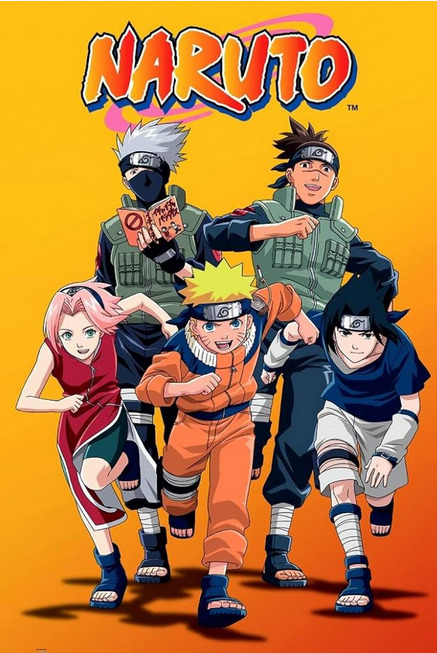





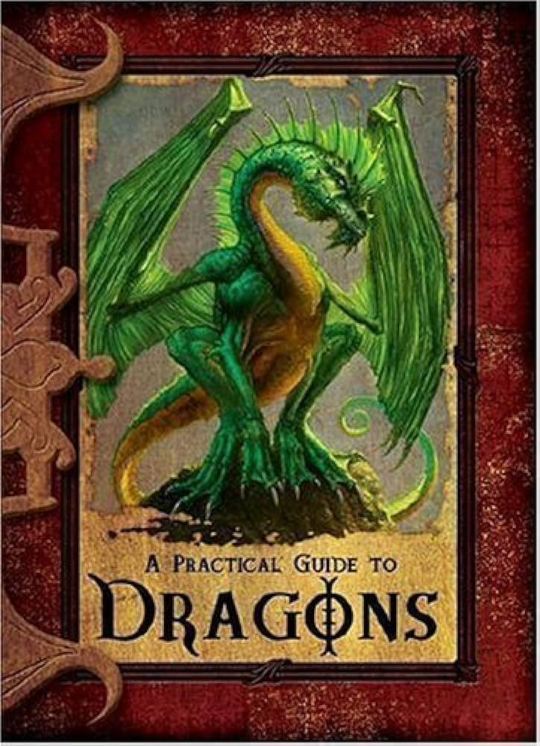

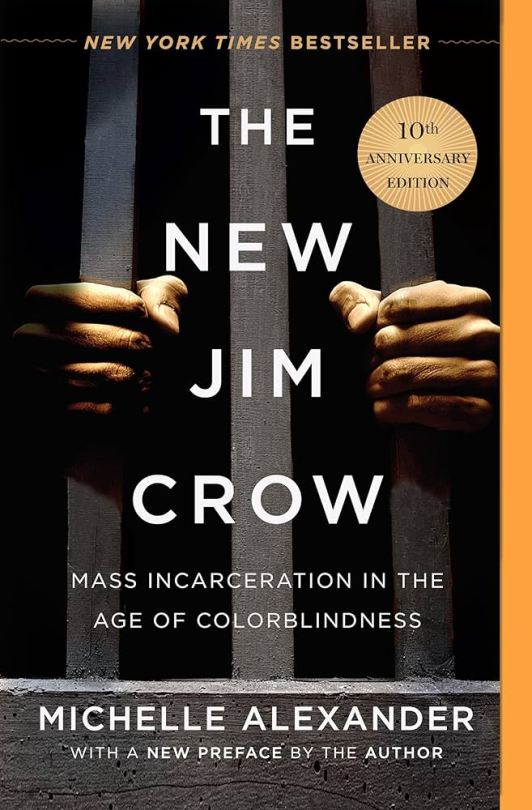




ANSWER UNDER THE CUT
All of them have been banned, or access to them has been restricted, in a prison in America within the last ten years.
In many states, prisons have broad and vague guidelines for book restrictions -- N.J. Admin. Code § 10A:18-4.9 grants prisons the right to ban a book if it "Lacks, as a whole, serious literary, artistic, political or scientific value". In Arizona, "inmates are not permitted to send, receive, or present... Publications that depict nudity," and explicitly states that classical art is not an exception (DO 914: 8.2.1 and 8.2.1.1).
I volunteer at a nonprofit that sends free books to prisoners. From personal experience, I know there are sweeping book restrictions such as "no dictionaries," "no coloring books," or "no manga". While these books are not always strictly banned, inmates are frequently underpaid, or forced to labor without pay. That means many inmates cannot afford to purchase books, and rely on nonprofits for access.
Book bans in public libraries and schools are unconscionable, but they are usually not effective at restricting access. A high school student can usually still see an image of Michelangelo's David even if they cannot learn about it in class. In prison, a book ban on nudity can permanently prevent inmates from accessing great works of art, the shared heritage of humankind.
DONATE TO THE INSIDE BOOKS PROGRAM IF YOU HAVE THE OPPORTUNITY. THEY SEND FREE BOOKS TO PEOPLE IN PRISONS.
Sources:
Found on Marshall Project
1,001 Movies You Must See Before You Die (banned in California according to Marshall Project
Basic Fundamentals of Modern Tattoo (Illinois)
No role playing games. A Practical Guide to Dragons. Abolish Prison Slavery. “A Multi Denominational Wicca Bible. (Montana)
101 Things to Do With Mac and Cheese (New Jersey)
“But, Didn’t You Kill Malcolm?” and “A Field Guide to Lucid Dreaming” (North Carolina)
“100 Years of Chevrolet” “1000 Dot to Dot Animals” (Oregon)
“San Francisco Bay Newspaper” “Making Everyday Electronics Work” (Rhode Island)
“Marvel Encyclopedia” (South Carolina)
“A Brief History of Manga” (Texas)
“1001 Photographs You Must See in Your Lifetime” (Virginia)
“A Question of Freedom” Reginald Dwayne Betts (Wisconsin)
The Tennessean
A prison in Tennessee restricts access to The Quran, The Torah, The Bhagavad Gita, and books about Norse mythology. (The ban did not apply to the Bible.)
Personal Experience
I am not willing to dox myself, so I cannot name the nonprofit where I volunteer. However, I swear that I have seen book bans on manga, how-to-draw guides, coloring books, electronics books, dictionaries, and composition notebooks.
131 notes
·
View notes
Text
Meine Liebe
Dick Winters x Translator!Reader
Masterlist
Request: @flowers-and-fichte Hey! Thanks for the Chuckler headcanons! They're so cute! I've got another request :) it's BoB-related this time. Winters with a reader who is fluent in German and teaches him to speak it. And then one day he surprises her by speaking it (wedding proposal, just starts talking in it out of nowhere, whatever) to her and it's so freaking cute. Thanks! Take your time :)
A/N: i loved this concept!! thanks for the request! hbo owns the rights, and this is about the fictional portrayal of easy company on the show. nothing but love and respect for veterans on this blog!
Word Count: 4k
Warnings: none!


When (y/n) first signed up to be an intelligence translator for the Airborne, she had no idea what was in store for her. Jumping out of planes was expected, but what she couldn’t have expected was a red-headed man named Dick Winters. Nix introduced them in Aldbourne when she joined the company, and something about the Pennsylvanian struck her differently than the other men she’d met. Most eyed her warily, but the man she met that day flashed her a kind smile and a firm handshake, sending an unexpected warmth through her.
“So you’re our new interpreter,” he stated, his polite eyes never leaving hers as he shook her hand.
(Y/n) nodded, her lips quirking into a grin. “Yes, sir. (Y/n) (y/l/n).
“Dick Winters,” he replied, releasing her hand after a few moments. “Welcome to Easy. Please let me know if you need anything.”
Before she could respond, Nix called out to her. “We’ve gotta get to battalion, come on.”
With a final nod to Winters, she saluted and turned on her heel, walking over to Lew who was sitting in the driver's seat of a jeep. “So, you met Dick,” he announced, shifting the jeep into drive. “Whatcha think?”
(Y/n) scoffed lightly as she gazed at the rows and rows of tents that lined the airfield. “I only spoke like two sentences to him, Lew.”
Luckily, Lew and (y/n) grew up in neighboring towns in New Jersey and knew each other through mutual friends. Everyone knew the Nixons for their nitration plant that was in Edison, but (y/n) knew the Nixon boy as the teenager who took her best friend to the prom and got so drunk that he threw up on her beautiful blue dress. Betty still hadn’t gotten over it by the time (y/n) left for basic.
“No sparks flying yet?” he grinned, elbowing her shoulder playfully as he drove. “Give it time. I know it will.”
“What is wrong with you, Lewis?” she asked, her voice tinged with frustration. “I just met the guy! And we’re going off to war for Pete's sake, not some low-crawling pub where men are lined up to dance with me.”
Her job was to decode and translate intercepted German communications, as well as translate in the field and interrogate prisoners if need be. There were times when being the daughter of Austrian immigrants was awful, but other times, it came in handy. Without her parents teaching her their language, she wouldn’t be in her position in the Army.
As the months passed in Aldbourne, (y/n) was swamped with intercepted communications, paperwork, and various intelligence reports. She rarely did anything other than work in her office, growing tiresome of the monotonous click-clack of the typewriter. What little time she did have outside the office was spent either visiting the Blue Boar with the other officers or quietly reading in the fields of wildflowers near her billet.
The sun set perfectly on the lilies and colorful harebells, orchids, and cornflowers that were scattered among the grass. Any chance she got, she’d go lay out a blanket and get lost in the pages of “A Tree Grows in Brooklyn,” escaping the war as the words came to life in her mind. Time seemed to blur as the months stretched on in Aldbourne.
With the follies of the Italian campaign, the Allies knew they had to try a different approach. Nixon and (y/n) had talked about the possible landing locations and tactics, but no plan was in motion quite yet. This did not stop them from preparing for the possibility. Easy’s training got increasingly realistic the further they got into 1944. By early February, Dick, Harry, and the other platoon leaders were brought in on the intelligence officers’ speculations. A few weeks later, (y/n) was working in her office when she heard a knock on the door.
“Come in,” she called, not looking up from her typewriter as she finished a translation.
The door creaked open, and in walked Dick who was wringing his hat between his hands, almost as if he was nervous. “Hi, (y/n). Sorry to disturb you.”
Hearing his voice, (y/n) looked up from the paper, a small smile forming as she took in his timid expression. “Hi, Dick. You’re not disturbing me,” she said, pointing to the large stack of papers on the corner of her desk. “These aren’t going anywhere.”
Dick clasped his hands behind his back and walked closer to the desk. “I wanted to ask you a favor.”
(Y/n) nodded, gesturing for him to sit in the extra chair beside her desk.
Dick sat down and continued. “Would you be able to teach me some basic German? I know that you are fluent in it, so-”
“Of course!” She interrupted, excitement lighting up her features. “I’d love to!”
Dick seemed surprised as he sheepishly smiled at her from across the desk. “It would be useful to know some phrases when we finally get into combat.”
“I think it’s a great idea.”
From that cold February day on, the pair met every Saturday night in (y/n)’s billet. Her host family, the Bennets, insisted on making a big family dinner every time (as large as they could with rationing), treating Dick as one of their own. (Y/n) watched from across the dining room table as he spoke to Mr. Bennet with a polite smile. The golden light from the setting sun filtered through the open blinds, highlighting the soft brown freckles that adorned his face. (Y/n) couldn’t help but admire his handsome features, a thought that she’d kept hidden mainly to keep Nix off her trail about the supposed ‘sparks’ that were supposed to fly between them at some point.
“I was worried about you Yanks, but if they’re all like you lot, I think we’re in good shape,” Mr. Bennet laughed, scooping a forkful of roast into his mouth.
Dick chuckled breathily, his eyes flitting to the (y/h/c) across from him, catching her staring red-handed. “Thank you, sir,” he replied, his face warming under her gaze.
After the dinner table was cleared, they continued their weekly tradition, sitting across from each other once again. “These are pretty basic, but they’re important,” she began, her eyes locking with his. Repeat after me. ‘Guten Abend.’”
Dick listened carefully, his eyes drifting down to her lips before echoing her pronunciation. “Guten Abend.”
“Very good,” (y/n) praised, her smile growing. “Now how about ‘Bitte’ which means ‘please,’ and ‘Danke,’ which means ‘thank you.’
“Next, let’s learn ‘Wie geht es Ihnen?” (y/n) said, her voice taking on a reassuring tone. “It means ‘How are you?’
As they repeated the words together, her beloved language created a unique connection between them that she never thought possible. It felt good to speak the language in situations other than wartime intelligence. As she taught Dick, she fell in love with her family’s native tongue all over again, but that love wasn’t the only thing blossoming in the cozy dining room.

Under the shade of a sturdy tree in the Bennet’s backyard, the late afternoon sun cast a glow over the yard. (Y/n) and Dick sat side by side, leaning against the trunk as they took a short break from their lesson.
(Y/n’s eyes began to droop, fatigue creeping in like a silent intruder. The lines of exhaustion were etched beneath her eyes, and Dick couldn’t help but notice her weariness.
“Are you alright?” he asked gently, leaning closer to her, his brow furrowed in concern.
She sat up straighter, rubbing her eyes with the back of her hand. “Yeah, I’m just tired,” she admitted, her voice a soft murmur.
Dick turned to her with eyes filled with worry. “Up late doing translations?”
(Y/n) nodded, her shoulders sliming slightly. “Yes,” she sighed, leaning her head back against the hard tree bark. “We’re getting more and more communications every day. It’s hard to keep up.”
Seeing her struggle, Dick scooted closer to her and paused before gesturing to his lap. “Here,” he suggested, his tone gentle. “It’s more comfortable than a tree,”
A small, tired smile crossed (y/n)’s face as she responded with a weary, “Yes, sir,” She laid her head on his lap, peering up at him through heavy-lidded eyes.
Dick felt a warm, protective swell of emotion as she nestled into his lap. Her presence, despite her exhaustion, brought a sense of peace and contentment he hadn’t realized he was missing. He could always show up at her door and have dinner like there wasn’t a war going on. Their routine had developed into what he looked forward to the most as the week went on. Any conversations they managed to have during their daily regimens and workload were filled with smiles and talks of the upcoming weekend, Saturday’s dinner menu, and other little things that reminded him of home.
A soft pink tinge rose from Dick’s neck to his cheeks as he brushed a strand of hair away from her face. “Better?” he inquired, his voice a soothing, gentle rumble.
(Y/n) let out a contented sigh, her eyes fluttering closed as she whispered, “Yes, thank you, Dick. I needed this.”
He watched over her with a mix of concern and affection, his fingers absentmindedly tracing circles on her shoulder. “You’ll work yourself to death in that office, (y/n).”
She squinted one eye open, her gaze focused on him. “I know,” she replied quietly, her voice tinged with desperation, “I can’t rest knowing my family is still stuck there, Dick.”
The lieutenant’s eyes saddened, his heart aching at the raw pain in her voice. He moved his hand from her shoulder to rub her hair back gently. “In Austria?”
(Y/n) nodded, her voice hushed and heavy with emotion. “Yeah,” she murmured, blinking to combat the tears that were filling her eyes. “My grandparents, aunts, uncles, cousins…they all stayed. They’re still there, and we haven’t heard from them in almost a year.”
“So you’re doing this for them.”
“For them and all the other innocent people whose lives have been torn apart by Hitler,” she confessed, her voice wavering.
A tear trickled down the side of her cheek, and she felt a warm hand wipe it away gently. “I’m sure they wouldn’t want you to run yourself into the ground, sweetheart,” Dick murmured softly, the term of endearment slipping out before he could stop it. “When we finally do see action, you won’t be a hundred percent if you’re constantly running on fumes.”
She let out a shuddering breath, her emotions overwhelming her. (Y/n) sat up, shifting to bury her face into Dick’s shoulder, finding comfort in his embrace. His arms encircled her, pulling her into his side as he rubbed his hand soothingly along her back.
“Please take care of yourself. If not for them, do it for me. Please,” he whispered into her hair.
As the evening sun bathed them in a warm light, (y/n) pulled back from their embrace, her tear-filled eyes glistening with gratitude and adoration. She gazed into Dick’s calming, emerald-green eyes, vulnerability seeping from her. His eyes mirrored her intensity, and a soft, affectionate smile played on his lips. With her heart pounding in her chest, (y/n) brought her hand up to his cheek, her fingers tracing the contours of his skin with a gentle, trembling touch.
Their eyes met, and in that silent exchange, a powerful connection was forged. Slowly and with a sense of natural ease, she pulled him closer, guiding him toward her. Dick, momentarily taken aback by the unexpected tenderness of her actions, felt the soft, deliberate pressure of (y/n)’s lips against his. Their lips met, and their connection deepened as their mouths moved together, a tender and affectionate expression of their feelings. Their kiss was a gentle exchange of affection, an unspoken testament to the emotions that had quietly grown between them.
As (y/n) and Dick pulled back from their tender kiss, their actions spoke volumes in the quiet of that moment. Their lips slowly parted, the sensation of their kiss still lingering in the air like a sweet, unspoken promise. They looked into each other’s eyes, their gazes locked in a lingering connection that was filled with understanding. (Y/n) inched back slightly, her touch soft and tender as her fingers gently brushed over the freckles on Dick’s cheek as she withdrew from their intimate embrace.
“Thank you,” she whispered, her voice a gentle murmur, sniffling slightly as she rested her forehead against his. Dick’s heart raced, and he could feel her warm breath on his face.
“They’ll be proud of you. I’m sure of it.”

MAY 7, 1944: BERCHTESGADEN, AUSTRIA
(Y/n) reclined on a wooden, sun-soaked deck chair, gazing out at the breathtaking landscape of the Bavarian Alps that stretched before her. The mountains stood tall and majestic, their peaks kissing the cloudless sky. She felt a sense of awe at the natural wonder surrounding her.
Harry sat at the end of her chair, and Ron and Nix were sitting on the one beside them, all three drunk as a skunk. Their voices filled the air with drunken excitement, and their ramblings brought a wide smile to (y/n)’s face.
Nix groaned in good-humored frustration, raising his fingers in a futile attempt to count off the main leaders of the Nazi party. “Hitler, Hitler…no.”
Rolling his eyes, Ron chimed in, his voice louder as they spoke over each other, creating a chaotic atmosphere. “Hitler, Himmler, Goering-”
“And Goebbels,” Harry finished, his grin infectious as he completed the list.
(Y/n) couldn’t help but laugh heartily, tears gathering in her eyes as she watched her friends stumble through their banter. The joy of the moment, the beauty of the scenery, and the relief from no constant action and danger all combined to create a warmth in her heart that was impossible to contain.
“I’m so glad I get to see this,” she wheezed between fits of laughter, her hand clutching her stomach as another wave of cackles escaped her.
The sound of footsteps made her turn, and she saw Dick approaching with Lip. She smiled at him, her heart beating slightly faster when he returned a wink.
“Hey, Adolf! Love your Eagle’s Nest,” Harry yelled, standing up wobbly and grabbing Dick’s shoulders. “I hope you don’t mind. We made ourselves at home. Love what you’ve done with the place here.”
(Y/n) chortled again, earning an amused look from Dick, who found the whole situation hilarious. But he had more important news to share.
Welsh grabbed a bottle of champagne and held it out for the major. “Hey, have a drink. Come on. Just so we can say we saw you do it,” he implored, staring for a moment as Dick didn’t respond.
Smirking, (y/n) rose from her chair and gracefully pushed the bottle back toward Harry as she moved to stand between him and Dick. “You drink it, Welshy.”
Welsh retracted his hand, standing there for a moment like a pouting child, while Dick, who had patiently waited, pulled out a sheet of paper. He cleared his throat and started to speak, his gaze warm as he looked down at (y/n) beside him. “Listen up. From Corps, it just came in. Effective immediately, all troops standing fast on present positions.”
Nix rested his hands behind his head as he lay on the chair with a smirk. “Standing fast.”
Ron, his usually sharp eyes now glazed over from the alcohol, looked up and asked. “What does that mean?”
(Y/n) ran a hand down her face with a giggle. Her laughter was infectious, and the group chuckled, with Dick’s laughter being the loudest. His smile was the widest she’d seen in months, and the sight stirred something within her.
“Do you want to hear it?” he asked the group as he wrapped an arm around (y/n)’s shoulder.
Harry nodded, grunting in reply, and Dick repeated the sound, raising an eyebrow at the man. “Are you ready for it? Listen up, the German Army surrendered.”
The news sent a sudden hush through the group, and the jovial atmosphere vanished, replaced by a solemn and reverent feeling that settled inside each of them. (Y/n) looked up at Dick, her eyes widened in disbelief.
“Really?” she whispered, her voice filled with hope.
Dick nodded and squeezed her shoulder softly. “Yeah, sweetheart. They did.”
In that instant, she couldn’t contain her joy. She flung her arms around his shoulders, squealing happily, and he snaked his arms around her waist, hugging her tightly. The weight of the past years seemed to lift, replaced by a hope of peace in Europe for people like her family who were caught in the crossfire of war. As they pulled back from their hug, the sheer happiness of the moment made (y/n)’s eyes glisten with tears. Around them, the other officers were clapping each other on the back and expressing their own gratitude that victory in Europe had been achieved.
With a soft smile, Dick placed a hand on her lower back and led her to a farther part of the balcony, giving them privacy from prying eyes. He could see the curiosity in her eyes and as they found a quiet corner, he spoke in a hushed tone. “I got word today, (y/n). About your family.”
Her eyes widened in anticipation, and her heart raced. “My family? Where are they? She asked, her voice trembling with a mix of hope and fear.
Dick placed a gentle hand on her shoulder, offering her the support she needed to hear the news. “They’re alive, (y/n). They’re living in Salzburg.”
The emotion she’d swallowed down came flying back, and tears welled up in her eyes again as her voice trembled with relief. “Salzburg? Oh, thank God,” she croaked.
(Y/n) couldn’t hold back her emotions any longer, and the tears streamed down her face as she wrapped her arms around Dick, hugging him tightly once again. It was a cry of pure relief, a release of tension that had gripped her heart for so long.
Dick held her close, his own emotions stirred by the moment. He could feel her relief, his arms wrapped around her as he gently stroked her back. The news also meant that they were one step closer to going home. One step closer to spending the rest of their lives together.
In the midst of the moment, (y/n) looked up at Dick, a radiant smile breaking through her tears. Her soft voice was barely more than a whisper as she spoke. “I love you, Dick.”
Their eyes locked in a tender, unspoken understanding as Dick leaned down to cup her cheek, his thumb gently brushing away a tear. “I love you, too, (y/n).”
The mountains of Berchtesgaden stood as silent witnesses to what was about to transpire. It was the perfect setting for a moment they would cherish forever. As they stood there, Dick took (y/n)’s hand in his, his gaze unwavering as he looked deep into her eyes. With a smile, he began to speak…but it wasn’t English.
“Meine Liebe, du weißt, ich bin nicht der Beste im Umgang mit Worten, aber ich liebe dich mehr als das Leben selbst. Ohne dich hätte ich das nicht überstanden und ich möchte nie wieder ohne dich sein,” he began, his heart pounding in his ribcage.
My love, you know I'm not the best with words, but I love you more than I love life itself. I wouldn't have gotten through this without you, and I don’t want to be without you ever again.
(Y/n) looked at him, her eyes widening in surprise and joy. She blinked in disbelief, her heart skipping a beat.
“Willst du meine Frau werden?” Dick continued.
Will you marry me?
A gasp escaped (y/n)’s lips as tears continued to trickle down her cheeks. She couldn’t believe what was happening, and her heart swelled. Dick got down on one knee, his eyes filled with a softer determination than the one she saw in his eyes on the battlefield. He reached into his OD pocket and pulled out a small, elegant ring.
In a voice filled with emotion, he asked, “Möchtest du mein leben mit mir teilen?”
Will you share your life with me?
Tears streamed down (y/n)’s face as she nodded vigorously, unable to speak through her overwhelming joy. She held out her hand, and Dick slid the ring over her finger. It fit perfectly, just as they did in each other's lives.
With a smile that held all the love in the world, he whispered, “Ich liebe dich.”
I love you.
With the golden rays of the setting sun casting a warm, enchanting glow on the balcony, Dick stood up from one knee and pulled (y/n) into a gentle, affectionate embrace. The light from the setting sun illuminated their features, turning their silhouettes into a work of art against the breathtaking backdrop. Their kiss was tender and sweet, filled with the promise of a future together.
Their actions were delicate and filled with longing. Dick’s arms enveloped (y/n) as he kissed her, his fingers brushing softly against her cheek, and (y/n) responded with more fervor, deepening the kiss. Her hands found their way to his shoulders, fingers clutching his uniform as if grounding herself in the reality of the moment. The hand on her cheek threaded into her hair and pulled her impossibly closer.
With huge smiles on their faces, (y/n) and Dick pulled back from their kiss. The moment was perfect. However, their intimate moment was suddenly interrupted by a chorus of whistles and cheers coming from the adjacent balcony. Ron, Harry, Lip, and Nix watched on as the couple got engaged. They exchanged glances and held hands as they made their way toward the cheering men.
Nix hugged Dick and slapped him on the back, his expression a mix of humor and satisfaction. “Now if I remember correctly, some wise guy called this the first time you two met…oh wait, that was me.”
Dick’s brows furrowed in confusion, and he turned to his fiance for clarification. “What?”
Rolling her eyes playfully, (y/n) leaned into his side, patting his chest lightly. “Back in Aldbourne, Lew just thought that, and I quote, ‘sparks would fly’ between the two of us.
“Well, I’m so glad they did,” Harry laughed, holding up a wad of cash in front of him. “I’m a rich man now.”
The major blinked at Harry, his amusement evident. “How am I not surprised you bet on us?”
“You think that’s all we bet on?” Ron slurred, sprawled out on a chair with his eyes closed. “We also bet on when-”
Thankfully, Lip stepped in to stop the Captain, who appeared to be thoroughly drunk. “Alright. Let’s get you to bed, sir.”
(Y/n) grinned, admiring Dick’s features above her. “Where did you learn all of that?” she asked. “Because I’ve never taught you anything that complex.”
“A man never tells his secrets,” he replied, kissing her temple lovingly.
“It was Liebgott, wasn’t it,” she chuckled, raising an eyebrow at him. “Cause only Joe knows that much German other than me.”
“Well,” Dick began, “There’s a lot more where that came from.”
“Oh really, Major Winters. Care to enlighten me?”
He sighed, “Nope. I’ve been practicing that for months. It’s all I’ve got.”
“Then it’s a good thing you’ve got the best teacher by your side for the rest of your life, huh?”

Tag List: @liptonsbabe @footprintsinthesxnd @bucky32557038ww2 @flowers-and-fichte @merriell-allesandro-shelton @ronsparky
message or comment if you want to be added to the tag!
#band of brothers#hbo war#band of brothers fanfic#band of brothers imagine#band of brothers x reader#dick winters#band of brothers imagines#easy company#dick winters x reader#dick winters fluff#dick winters imagine#dick winters imagines#band of brothers easy company#easy company imagine#easy company x reader#bob#hbowar x reader#hbowar#hbo war x reader
196 notes
·
View notes
Text
I found this 100 year old book today, which was published by the City of Boston and contains a bunch of information and statistics about the previous year (this volume was printed in 1924 and is a review of the year 1923).

It's kind of weird that it's a 100 years old, but at the same time just feels like a regular book. When I see '1923' I get confused and makes we think that it's a book from and 1990s or something.
There are some eerie references in the introduction that it's been 5 years since 'the world war' (WW2 was still 15 years in the future), but for context in 1924 these are some things that were happening:
Hitler was sentenced to 5 years in prison for his participation in the 1923 Beer Hall Putsch (he serves less than 9 months).
Fascists win the Italian general elections with a two-thirds majority.
U.S. President Calvin Coolidge grants citizenship to all Native Americans.
The Zeppelin made its first transatlantic crossing from Germany to land in New Jersey.
United States occupation of the Dominican Republic ends.
The last known sighting of a California grizzly bear is recorded.
Astronomer Edwin Hubble announces that Andromeda, previously believed to be a nebula, is actually another galaxy, and that the Milky Way is only one of many such galaxies in the universe.
86 notes
·
View notes
Text
My DCU Aesthetic: Gotham City
I have entire folder of pictures and ideas of what I want Gotham City to look like in the next film. I’m excited for what James Gunn has planned, but this is what i would do to our favorite crime riddled city. *I will be using photos to serve as visuals. I do not claim them as my own.*
Wayne Enterprise:
I loved the animated series and still watch it. I loved the Dark Deco style and I feel like the next live action Gotham City should borrow from that style especially when it comes to older buildings or those with wealth. Wayne Enterprises is not the original Wayne Tower however. Wayne Enterprises is a new building and housed most of the new branches. Like Wayne Pharmaceuticals, WayneTech, Wayne Entertainment,etc. While the WayneTech is the largest of several divisions Bruce Wayne does invest his time into the other divisions which has their own heads. Like Lucius Fox being the head of the WayneTech division and Tim Drake was once the CEO and the head executive over several departments and still acts as CEO when Bruce can’t attend to certain issues.
-

GCPD:
I think GCPD is one of the if not the oldest building in Gotham. It houses all of Gotham Finest, as well as the home of the Bat Signal. Commissioner Gordon runs the police for and wants to maintain order as well as restore the order within the precinct. Prior to him joining it the police department was extremely corrupt and made dealing with the mob. The building is old and has went through several revisions and additions like the major crimes building and the maximum security holding cells to hold and temporary hold some of Gotham’s most infamous and dangerous criminals until further transportation.
-
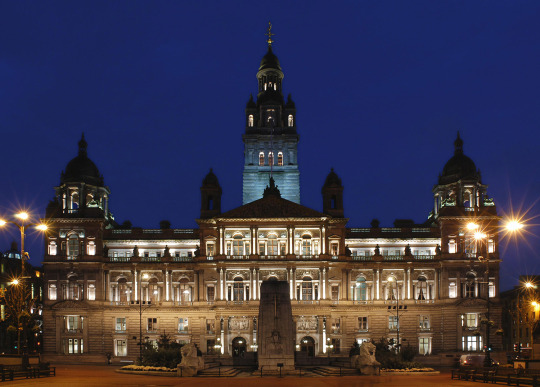
Old Gotham:
Old Gotham is the largest and south most port of the city. A lot of old family industries are rooted here along with a lot of businesses , the financial district and Gotham’s fashion district are located here. It also where most of the other popular locations are like Slaughter Swamp,Blackgate Prison and Lady Gotham.
-
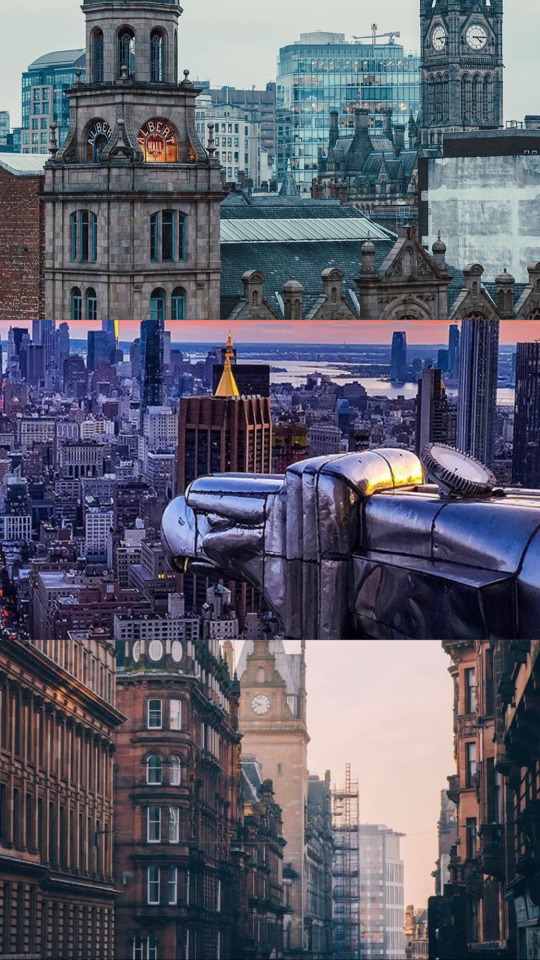
New Gotham (Somerest)
New Gotham is the small and most central of the three larger islands. It’s the island that connects Arkham Island to the mainland. It is also where newer companies and corporations have housed the building on this island since its restoration from No Man’s Land. Gotham’s East End is here protected at lot by Catwoman herself. Chinatown is also here as well.
-

North Gotham (Burnley):
North Gotham is the north most part of the city. This is also the most historic part of the city with a lot of wealthy residents and city officials residing in this area. Gotham State University is also in this area and has several popular small shops, Townhomes, City Hall,cafè, and as well as several prominent landmarks like Gotham Cathedral and several other smaller churches like Devity Church.
-
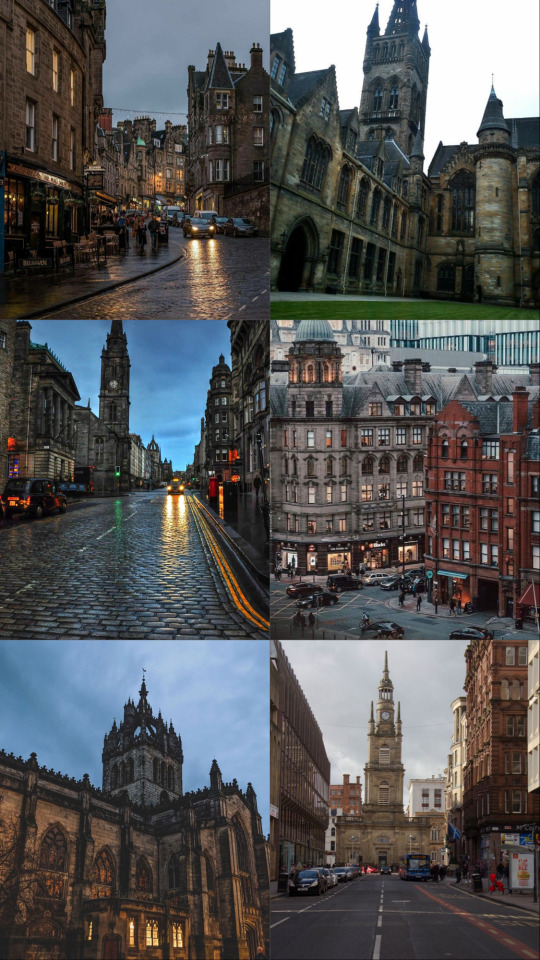
Wayne Manor:
Stately Wayne Manor located in the Bristol district, just outside of the city limits. It’s where some of the upper class residents. Most of the older families settled here but a lot of them in last few decades relocated to the city living in penthouses and townhouses. It’s also home to several of Gotham’s oldest and most prominent schools.
-

Gotham City Map:
I used this map and different variations when I am talking about my version of Gotham city, as well as thinking of locations within the city for storytelling. As well as a additional one I found that looks like a an irl map of Gotham, which is part of New Jersey.

#batfamily#dc comics#dc universe#dc live action#batman#batfam#dick grayson#gotham knights#jason todd#tim drake
48 notes
·
View notes
Text
I'm a firm defender of Arkham being terrible. The worst place on Earth. This place is clearly making everyone worse.
Give me Jonathan Crane loving how cruel and lax one could get with the "patients" at Arkham as he tested his toxin only for him to realize that the same "treatment" would be gave to him as he is finally caught by Batman. Jonathan who was one of the doctors who signed authorizing eletroshock "therapy" because he didn't care either way only for years later see himself being dragged to the eletroconvoulsive room.
Give me Harvey Dent trying to use his lawyer knowledge to protect himself and his friends by mentioning how solitary confinament against mentally ill people is not allowed on the state of New Jersey only for the guards/doctors to smile cruely and say "oh but this isn't solitary confinament it is *insert buzzword for solitary confinament that makes it legal*"(and yes prisons do that irl).
Harley painfully trying to explain both as doctor and as patient that inhumane treatment of inmates was scietifically proven to only make them more violent only to be ignored because "don't the guards deserve revenge" or some similar bullshit.
Ivvy who just wants her plants. Who gets physically sick when she can't get close to the green. But she can't have even sunshine because they specially discriminate against metahumans. And what if she uses her powers? Same for Music Maister except is worse because it is his voice! They even take Freezes suit away the first times but when they realize he will just die he just gets an special room that is basically temperature zero solitary but don't worry is for his own good.
All while doing human experimentation with Clayface because he is a meta anyway and honestly does he even count as human? And of course let's not forget Killer Croc that gets to be arrested in a cell on the fucking sewers. Yes it does not have basic sanitation whatsoever and yes Waylon deserves better.
Jervis who gets punished for daring saying they have no respect for the human mind. And King Tut who is mocked for his delusions instead of helped in any way.
Joker who spends more time in solitary than with actual people to the point is very likely that he was actually sane before Arkham and just an evil clown.
Riddler who spends most of his stay just drugged out of his mind because he talks to much and both the nurses and the guards find him annoying and isn't the silence best for everyone? And if him (or anyone who is reciving too much medication or the wrong meds) gets an addiction, well is not their problem.
And of course the more important part: Bruce who has no clue what is happening until Joan Leland enters the picture and contacts him for help because it doesn't matter if they are all criminals they are people and she is going to do her job (and Bruce Wayne is the only donor that cares). Cue to an horrifyied Bruce questioning his former stance on crime and getting ready to help make Gotham a place were rehabilitation is truly possible.
#arkham asylum#arkham is bedlam#arkham makes the rogues worse#bruce wayne#batman#scarecrow#poison ivvy#music meister#mr freeze#clayface#killer croc#madhatter#king tut#joker#riddler#joan leland#Two-Face#cw prison abuse#cw dehumanization#cw medical abuse#bruce is not able to single handed change the system#it takes time and a lot of people and to have a rich famous guy does help but like all systemic change is hard#and is only Arkham#yes Bruce won't stop at Arkham on his advocacy for a better prision system but that takes a lot of work
242 notes
·
View notes
Text

A female inmate at Mexico’s Chalco Penitentiary and Social Reintegration Center has reported that she was sexually assaulted by a trans-identified male who had been placed in her cell.
The male inmate had a history of sexual violence, and threatened to harm the victim’s children if she spoke out about what happened to her.
The assault occurred in July of 2022 after the trans-identified male inmate was transferred into the victim’s quarters. Despite having a history of violent sexual crimes and misconduct, the perpetrator was allowed to move into the women’s area where there was minimal security, with some sections being separated only by fabric curtains.
While the victim had initially been threatened into silence as the trans-identified male had promised to harm her family using contacts he had on the outside, she eventually reported the assault to prison authorities.
CODHEM, the Human Rights Commission of the State of Mexico, launched an investigation and determined that “one of the [incarcerated women] was sexually assaulted by her roommate, who was a trans woman with previous complaints of misconduct and probable sexual harassment.”
CODHEM further revealed that “the aggression was not prevented by the prison authorities,” with the facility administrators having conducted an insufficient assessment of the inmate without follow-up and with no consideration for the possible risks the trans-identified male inmate posed to the women.
But disturbingly, despite affirming that the sexual assault had taken place and that the transgender inmate had been a risk to the women, CODHEM ordered prison staff to attend a “gender perspective” course.
As reported by El Gráfico, members of the Interdisciplinary University Seminar on Citizen Security at the National Autonomous University of Mexico were in charge of giving the course on human rights and “gender perspective” to eighty prison officials.
The same University was recently embroiled in scandal after trans activists staged a “coup” and took control over one of the largest women’s washrooms on the campus in protest of a lesbian mural being painted nearby. Trans activists vandalized the washroom, painting graffiti that threatened women critical of gender ideology with “rape and death.”
Despite Mexico’s political constitution outlining that prisons must be sex-segregated, the National Human Rights Commission of Mexico has declared that there is no “strict difference between men and women.”
Since news of the assault broke, Mexican media have almost uniformly referred to the assailant as a “woman,” or “trans woman,” using feminine pronouns to refer to the rapist.
Speaking to Reduxx on the disturbing case, Laura Lecuona, the head of WDI Mexico and author of Gender Identity: Lies and Dangers, slammed CODHEM for perpetuating gender self-identification policy in light of the obvious risks it posed.
“A man with a history of sexual violence is serving his sentence in a women’s prison, where he raped and threatened a cellmate, and the state human rights commission thinks that the solution is to give prison employees a little course on ‘gender,'” Lecuona says, questioning: “What will they teach them in this course? Likely that ‘trans women are women.’ The only solution is to recognize that self-declaration of sex involves several dangers for women.”
Lecuona also says gender self-identification policies must be “abandoned” completely in order to protect women.
“Feminists have been warning about this for years. There is still time [for authorities] to rectify and fulfill their obligation to guarantee women a life free of violence.”
The employment of “gender” counselors in cases where women have been involuntarily housed in close quarters with men who declare a transgender identity is an international phenomenon. In July, Reduxx revealed that a man who identifies as transgender presented a speech for a Women’s Empowerment event held at New Jersey’s only correctional facility for women, where he lectured female inmates on the importance of “inclusivity.”
La’Nae Grant reportedly told the women that he believed “cisgender women” may hesitate to accept trans-identifying men as female due to jealousy or “competition” between the groups for male sexual partners. The Edna Mahan Correctional Facility for Women has been plagued by violent male convicts being transferred into the prison, including a sadistic trans-identified male inmate who was handed a 50-year sentence in 2003 for the brutal rape and murder of a sex-trafficked woman from Ecuador.
.
.
.
.
Placing males' feelings and delusions before women and compromising their security in the process... Absolutely terrible. I took my time to read about Perry Cerf (the man mentioned at the end of the article) and I was this close to vomiting. The description of his crime and what he did to the woman (who was referred as a 'hooker' by other media outlet... Nice) is gut-wrenching so be careful.
And the immediate solution to a sexual assault committed by a trans-identified male in a women's prison is taking courses on gender perspective, suggested by the National Human Rights Commission out of all people... Noted.
95 notes
·
View notes
Photo

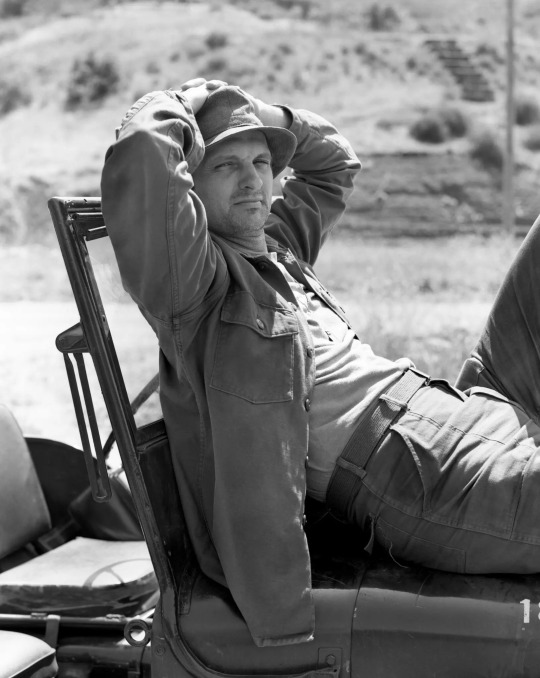
here’s the NYtimes interview with alan alda reflecting on the fiftieth anniversary of M*A*S*H (text below the cut)!!
By Saul Austerlitz
Published Sept. 16, 2022 Updated Sept. 17, 2022, 1:10 p.m. ET
When we think of the default mode of much of contemporary television — mingling the tragic and the offhand, broad comedy and pinpoint sentiment — we are thinking of a precise mixture of styles, emotions and textures first alchemized by “M*A*S*H.”
Created by Larry Gelbart and Gene Reynolds, “M*A*S*H” aired on CBS from 1972 to 1983. (It is currently available to stream on Hulu.) Over the course of its 11-year run, it featured alcohol-fueled high jinks and other shenanigans alongside graphic surgical sequences and portrayals of grief, blending comedy and drama in a fashion rarely seen before on television. Set among the doctors and nurses of a Korean War mobile surgical unit, “M*A*S*H” made use of the mockumentary episode decades before “The Office” ever tried it, featured blood-drenched story lines long before “The Sopranos” and killed off beloved characters without warning well before “Game of Thrones.”
The “M*A*S*H” series finale, titled “Goodbye, Farewell, and Amen,” remains the most-watched non-Super Bowl program ever broadcast on American TV. The heart of the series was Alan Alda, who played the acerbic and devoted surgeon Hawkeye Pierce throughout the show’s more than 250 episodes and also wrote and directed dozens of them.
The actor revisited “M*A*S*H” in a video interview ahead of the show’s 50th anniversary, on Sept. 17. Alda, 86, who was diagnosed with Parkinson’s disease in 2015, discussed famous scenes, the series’s battles with CBS (“They didn’t even want us to show blood at the beginning”) and why he thinks the audience connected so deeply with “M*A*S*H.” These are edited excerpts from the conversation.
How have you been feeling?
Good, thank you. You mean with regard to Parkinson’s or the Covid or what?
All of the above, I suppose.
Parkinson’s I’m on top of. And I haven’t come down with Covid yet.
What does it mean to you to know that people are still interested in “M*A*S*H” 50 years later?
I got the script submitted to me when I was making a movie in the Utah State Prison. And it was the best script I had seen since I’d been in prison. I called my wife and I said: “This is a terrific script, but I don’t see how I can do it. Because we live in New Jersey, and it has to be shot in L.A. And who knows? It could run a whole year.” To go from that to 50 years later, it’s still getting, not only attention but it’s still getting an audience, is a surprise.
What kinds of conversations did you have with Larry Gelbart before the show began?
With “All in the Family,” I think the door was open to doing stories about things that really mattered. So when I got out of prison and went down to L.A. to talk to them, the night before we started rehearsing the pilot, I wanted us all to agree that we wouldn’t just have high jinks at the front. That it would take seriously what these people were going through. The wounded, the dead. You can’t just say it’s all a party. And we talked until about 1 in the morning at a coffee shop in Beverly Hills.
Do you feel there was a shift over the first season away from the booze-fueled humor of the early episodes?
Yeah, there was. Partly because people who were submitting story lines thought that that’s what was wanted. Larry Gelbart rewrote most of the shows the first season. Midway through the first season, there was a show called “Sometimes You Hear the Bullet,” and that was a real turning point. Because in that show, a friend of Hawkeye’s shows up among the wounded, and he dies on the operating table. That’s the moment where McLean Stevenson [as Lt. Col. Henry Blake] says: “There’s two rules in war: Young men die, and then Rule 2 is there’s nothing you can do about it.” Something like that. [The exact quote: “There are certain rules about a war. And rule No. 1 is young men die. And rule No. 2 is, doctors can’t change rule No. 1.”]
The network was furious about this. Some guy in charge of programming said, “What is this, a situation tragedy?” Soon after that, we were getting more popular. And the more popular you get, the less they complain.
Was CBS also concerned about the language used to tell these stories?
The most striking example to me was early in the series. Radar [Gary Burghoff] is explaining to somebody that he’s unfamiliar with something. And he said, “I’m a virgin at that, sir.” With no sexual context. It was just that he’d never done something before. And the CBS censor said: “You can’t say the word ‘virgin.’ That’s forbidden.” So the next week, Gelbart wrote a little scene that had nothing to do with anything. A patient is being carried through on a stretcher. And I say, “Where you from, son?” And he says, “The Virgin Islands, sir.”
Early in the show’s run, Gelbart and Reynolds went to South Korea and recorded 22 hours of interviews with doctors, nurses, pilots and orderlies there. How did those interviews make their way into story lines for the show?
We had reams of transcripts of those conversations. I would go through them looking for ideas for stories. And I could see that the other writers were doing the same thing, because there’d be circles around sentences and words. Sometimes one little phrase would spark the imagination of one of us, and that phrase could turn into a story.
Larry and Gene went to Korea at the end of the second season, and they got a lot of material for stories. But they had also found that we had, by paying attention to the lives that they lived, we had made up stories that were very similar to things that had actually happened.
People may not remember that you directed 32 episodes of “M*A*S*H” and wrote 19 episodes. How did you start getting interested in writing and directing?
At the end of the first season, I wrote a show called “The Longjohn Flap.” I borrowed the idea of “La Ronde,” but made it long johns instead because it was reflective of what their lives were like in the cold. I had been trying to learn writing since I was 8 years old. I wanted to be a writer before I wanted to be an actor.
Were there story lines that you thought “M*A*S*H” hadn’t quite tackled yet that you wanted to bring into the world of the show as a writer and director?
When I wrote, I tried to find out a little bit more about each of the characters. Who is Klinger [Jamie Farr] really? What was underneath — I almost said, what was underneath the dresses. [Laughs.] What was underneath the wearing of the dresses? Who was Margaret [Loretta Swit]?
I see on the internet that people assumed that because I was politically active, trying to get the Equal Rights Amendment passed, that in my writing I was trying to make political points, too. And I wasn’t. I really don’t like writing that passes as entertainment when it’s really propaganda. I want to hear a human story.
The unexpected death of Colonel Blake (McLean Stevenson) in the Season 3 finale, “Abyssinia, Henry,” remains one of the biggest surprises in television history. What was it like to shoot that sequence?
Gelbart showed me the scene. I think [it was] the morning of the shoot. I knew, but nobody else knew. He wanted to get everybody’s first-time reactions. And it really affected Gary Burghoff on camera. I think everybody was grateful for the shock.
It shocked the audience, too. I had a letter from a man who complained that he had to console his 10-year-old son who was sobbing. But it was one of the ways for the adults in the audience to realize that another aspect of war is that things happen that you don’t expect.
Was there ever a point when you got tired of fighting the Korean War on TV? The old joke is the show lasted almost four times as long as the actual war.
Around a year before we finally ended it, I felt we were getting toward the end of our ability to be fresh every week. I started suggesting that we do a final movie-length episode that really could end it. First of all, we were getting too old to play these people. And after you tell stories about a group of people 250 times, it’s hard not to repeat yourself or say things that sound like they’re supposed to be funny but aren’t really.
What did it mean to you to have Hawkeye leave Korea scarred by the death of a child in the final episode?
You just described exactly what I wanted to do with all the characters on the show. I was looking for stories, each in a different way, that showed how everybody left the war with a wound of some kind. Everybody had something taken from them. And Hawkeye was just one of them.
Earlier in your career, you had been on another great military comedy, “The Phil Silvers Show,” also known as “Sergeant Bilko.” What did you learn about acting from your pre-“M*A*S*H” TV work?
The first thing I learned on the “Bilko” show was you have to know your lines before you go in for the day’s work. I had come from the stage, where I would learn my lines during rehearsal. And the first thing they did is say, “OK, you’re up for your phone conversation,” where it’s a page of dialogue. It was an eye-opening experience. [Laughs.] I staggered through that.
Why do you think the audience connected so deeply with “M*A*S*H”?
Aside from really good writing and good acting and good directing, the element that really sinks in with an audience is that, as frivolous as some of the stories are, underneath it is an awareness that real people lived through these experiences, and that we tried to respect what they went through. I think that seeps into the unconscious of the audience.
They didn’t even want us to show blood at the beginning. In the pilot, the operating room was lit by a red light, so you couldn’t tell what was blood and what wasn’t. Which, once we got picked up, was ditched.
And giving us a feel for the circumstances that the real people had to go through, so that you could see that the crazy behavior wasn’t just to be funny. It was a way of separating yourself for a moment from the nastiness.
You can’t get as harsh as it really was.
Correction: Sept. 16, 2022
An earlier version of this article described in error the viewership statistics for the series finale of “M*A*S*H.” It was the most-watched non-Super Bowl program ever broadcast on American television, in terms of total audience, not the highest-rated non-Super Bowl program. A rating refers to the percentage of TV households that watch a program. The “M*A*S*H” finale remains the highest-rated program, of any kind, ever broadcast on American television.
544 notes
·
View notes
Text
THIS DAY IN GAY HISTORY
based on: The White Crane Institute's 'Gay Wisdom', Gay Birthdays, Gay For Today, Famous GLBT, glbt-Gay Encylopedia, Today in Gay History, Wikipedia, and more … April 24
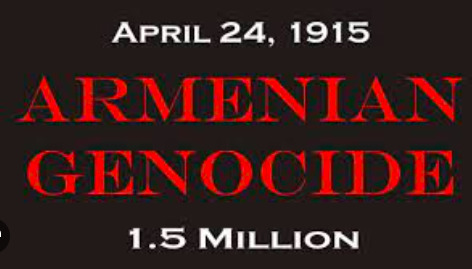



Twins Karl and Robert Oelbermann
1896 – Robert Oelbermann, German youth leader. (d.1941) In 1919 Robert and his twin brother Karl founded the Nerother Bund youth group in the Cologne region. Like other German youth groups, it aimed to bring youth closer to nature through camping and hiking. Homosexual relationships sometimes developed from the intense adolescent male camaraderie, and the Nerother Bund accepted these friendships, as did a number of German youth groups at the time.
Soon after the Nazis took power in 1933, they dissolved all independent youth groups and urged the members to join the Hitler Youth movement. Robert refused and secretly continued his connection with the Nerother Bund. In 1936 he was convicted under the Nazi-revised criminal code's Paragraph 175 which outlawed homosexuality. Robert was imprisoned with 13 other members of the Nerother Bund.
Robert was one of more than 50,000 men sentenced under Paragraph 175 during the Nazi regime. By 1941 he had been transferred to the Dachau concentration camp. Like many "175ers" in the camps, Robert was required to wear an identifying pink triangle. The "175ers" were commonly segregated in separate barracks, subjected to particularly harsh treatment, and often ostracized by other prisoner groups.
Forty-four-year-old Robert died at Dachau in 1941.


1951 – John Edward Heys is an American independent filmmaker, actor and writer who lives and works in Berlin.
John Edward Heys was born and raised in New Jersey. Upon his father's death two days after Heys' 12th birthday, he was enrolled and educated at a private boarding school in northern New Jersey. Upon graduating from secondary school, Heys moved to Miami Shores, Florida, to the home of his maternal aunts.
After two semesters of college majoring in Liberal Arts, Heys moved to New York City in 1968 and became part of the East Village and West Village alternative life and LGBTQ culture.
In August 1969, he founded America's first bi-monthly newspaper for the LGBTQ community, Gay Power, the official title totaling 24 issues and was editor until August 1970. One of its covers was created by Robert Mapplethorpe. The newspaper also contained illustrations by Touko Laaksonen, better known as Tom of Finland, as well as regular contributors as Arthur Bell, Taylor Mead, Charles Ludlam, Pudgy Roberts, Bill Vehr, Pat Maxwell, Clayton Cole and regular columns from all of the active LGBSTG groups, from the most conservative Mattachine Society to the most radical The Gay Liberation Front, and all the other groups in between.
Heys created several one-man performance pieces and he acted with Cookie Mueller, H.M. Koutoukas, Charles Ludlam, Ethyl Eichelberger and as part of the Angels of Light NYC Group which Hibiscus founded after moving to NYC.
Heys was a subject for the artists Peter Hujar, Francesco Clemente, Charles Ludlam, Richard Banks, Frank Moore and numerous other photographers. Heys was a close friend & muse of the photographer Peter Hujar and subject of many portraits. Hujar once remarked upon Heys' resemblance to Diana Vreeland, stating that, "I can take a picture of her and another of you and there is a resemblance".
In Berlin he was a friend of Charlotte von Mahlsdorf, the Neue Deutsche Welle (new-wave) band Die Tödliche Doris and to the radical gay-activist Napoleon Seyfarth. Heys made two films of Charlotte von Mahlsdorf, one of Napoleon Seyfarth, and was the subject of an 8 mm short film which Wolfgang Mueller made in 1984 in the legendary 1930's bordello, Pensione Florian.
Heys' films have been screened at many worldwide film festivals.


1952 – Jean-Paul Gaultier's clothes have both influenced fashions in the clubs and on the streets and have also appropriated ideas from those sources. Since his early shows Gaultier has drawn upon street styles and club culture for his haute couture creations.
A frequenter of gay clubs in London, he typically incorporates elements of gay style into his collections. His 1996 Pin Up Boys collection, for example, drew upon the sailor as a gay icon and presented figure-hugging pink and blue Tom of Finland style outfits.
Born in Arcueil, France, Gaultier was an only child. The future designer was greatly influenced by his grandmother, Marie Garrabe, a hypnotist and practitioner of alternative healing who encouraged him to pursue the unmanly pastimes of sketching and costume making.
Gaultier first realized the impact of his sketches when he was punished by his school teacher for drawing Folies Bergère showgirls. He was made to walk around school with the drawing pinned to his back. The punishment, however, only made the young Gaultier aware of his potential for showmanship.
Gaultier had no formal fashion training. Instead, he sent hundreds of his sketches to various couture houses. Pierre Cardin was impressed by the work and hired Gaultier as a design assistant in 1970, on the young man's eighteenth birthday. Gaultier worked for a number of other French design houses before launching his first collection under his own name in 1976.
However, it was not until 1981, when Gaultier began reflecting and adapting with his own inimitable touch key strands of London's youth subcultures, that his talent was established and his reputation as the enfant terrible of the fashion world was consolidated.
In addition to producing groundbreaking and outrageous clothes for his highly theatrical fashion shows, presented by unconventional models (transvestites, old and fat women, tattooed and pierced youngsters), he also launched cheaper diffusion ranges—Junior Gaultier (in 1988), Gaultier Jeans (in 1993), and JPG (in 1994).
In his designs, Gaultier toys with notions of masculinity and the appropriate forms of dress for men to wear. In 1985 he created his first skirt for men. While it did not create a major impact, it had some effect, as fashionable young gay men were seen in the clubs of London and Paris wearing skirts.
For his Autumn/Winter 1988 collection Gaultier again attempted to create a skirt for men; and in 1993, responding to the popularity of kilts amongst gay men on the streets of London and New York, his Vikings collection included his reinvention of the skirt for men in the form of the kilt.
Gaultier has utilized his distinctive appearance, especially his bleached blond hair and blue and white striped matelot T-shirt, as a fashion statement in its own right. When he launched his men's fragrance in 1995, it was in a male torso bottle that was striped to imitate his signature T-shirt.
At the end of the 1980s, Gaultier suffered several reverses, including most painfully the loss, from an AIDS-related illness, of his lover and business partner of fifteen years, Francis Menuge.
But in 1990 he returned to the forefront of fashion by creating the now infamous corset and other stage costumes for Madonna's Blond Ambition tour. "I love Madonna. That was one of the best times of my career," he told the London Observer newspaper in 1997.
The designer lives in Paris, where his business is headquartered, but also spends time in Italy, where his clothes are manufactured.

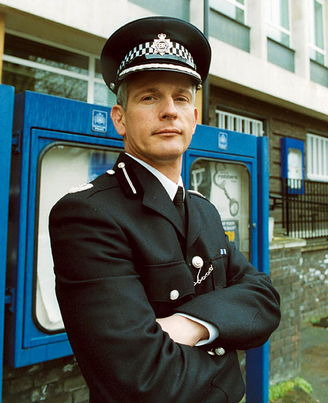
1958 – Born: Brian Paddick, Baron Paddick of Brixton, British politician, and Liberal Democrat candidate for the London mayoral election, 2008, coming third behind Boris Johnson and Ken Livingstone. He was, until his retirement in May 2007, Deputy Assistant Commissioner in London's Metropolitan Police Service and the United Kingdom's most senior openly gay police officer.
Paddick was educated at Sutton Grammar School, Sutton then went on to study at Queen's College, Oxford (BA), the University of Warwick (MBA), and the University of Cambridge (Postgraduate Diploma in Criminology). When he was at Oxford, he was Captain of the University Swimming Team and Vice-Captain of his college's Rugby team.
Paddick was a sergeant on the front line during the 1981 Brixton riots, an experience which undoubtedly shaped his attitudes about confrontational police action and strengthened his belief in community policing. He was later in charge of CID at Notting Hill and responsible for policing the Notting Hill Carnival. He was promoted to commander in December 2000, and fulfilled his ambition of becoming head of policing in Brixton.
In November 2003 Paddick was promoted to Deputy Assistant Commissioner, and in April 2005 he took over management of Territorial Policing across all 32 London Boroughs, with responsibility for 20,000 police officers and support staff. He was accountable for reducing 'volume crime' in London (all offences up to and including rape in terms of seriousness) and increasing the number of offenders brought to justice. He was the national lead for the police service on disability and mental health issues for a year and a half. He was also in the media spotlight as the senior Metropolitan Police Service spokesman for the funeral of Diana, Princess of Wales and after the 7 July 2005 London bombings.
Following a widely-publicised disagreement with Sir Ian Blair, the Commissioner of the Metropolitan Police, over the wrongful shooting of Jean Charles de Menezes at Stockwell Tube station on 22 July 2005, Paddick was assigned the position of group director of information management, which he considered a 'non-job'. Claiming that the Home Office had intervened for political reasons to ensure that Blair would not have to resign over the incident as it had occurred in the aftermath of 21 July 2005 London bombings, Paddick says he came to accept that his police career was over and that he would never achieve his goal of becoming a chief constable.
Between 1983 and 1988, Paddick was married. According to Paddick, it was 'a fairly conventional marriage' and his former wife said it was 'a wonderful marriage'. She did not know he was gay. He struggled with his sexuality until towards the end of his marriage in 1988. Since then he has been a vocal and visible advocate for gay rights and diversity.
He had a knack during his police career of attracting controversy over his policies, outspokenness and his sexuality but this seems to have done him no harm and has given him much credibility and popularity in his post-police political career, as he seems to a confident and charming man of integrity. Being somewhat handsome has probably not hurt either.
Paddick was a contestant on the eighth series of the ITV1 reality television show I'm a Celebrity... Get Me Out of Here! in 2008. On 1 December 2008, he became the sixth celebrity to be voted off the show. Interviewed by the show's hosts Ant & Dec after leaving the jungle, he explained his reasons for participating:
"For a long time I've been doing serious stuff. Thirty years in the police and running for mayor. It's all bad news that they want me to comment on. So I thought why not come and do something trivial ... It's the hardest thing I've ever done in my life, anything after this is a breeze."
In 2008, Paddick was ranked number 101 in the annual Pink List of influential gay and lesbian people in Britain published by The Independent on Sunday, down from number 83 in 2007.
Paddick presently lives in Vauxhall, London, with his husband Petter Belsvik, a civil engineer from Oslo, Norway; they met in a bar while on holiday in Ibiza. They married in Oslo 9 January 2009.
It was announced that he would be elevated to the House of Lords in August 2013. He was created a life peer on 12 September 2013 taking the title Baron Paddick, of Brixton in the London Borough of Lambeth.


1989 – Thomas Sanders is an American internet personality made famous by Vine and YouTube. He is best known for his Vine career until the app was shut down by Twitter at the beginning of 2017.
After the shutdown of Vine, he shifted his online presence mainly to YouTube, though he had started to create content on YouTube before that as well. His online personality consists of comedy, impressions, singing, and social justice.
He also has a career outside of the Internet performing in local theater productions with the hope of someday making it to Broadway. He managed to amass over 7.4 billion loops and 8.3 million followers on Vine, making his career one of the most successful in the app's short history.
Thomas Sanders was born and raised in Gainesville, Florida and still lives there today.
Although he does not reveal much about his family or personal life, he makes clear his pride of his predominantly Irish Catholic heritage, and he has revealed that he has three brothers: Patrick, Christian, and Shea.
On June 12th 2017, Sanders came out as gay in his video titled Having Pride.


1994 – Yaroslav Mogutin, Russia’s most visible openly gay journalist, makes headlines when he attempts to register his marriage to American artist Robert Filippini. The head of Moscow’s Wedding Palace No. 4 refuses his application.


23 notes
·
View notes
Text

In 1979, Revolutionary Assata Shakur escaped from U.S prison later received asylum in Cuba.
“I saw this as a necessary step, not only because I was innocent..but because I knew that in the racist legal system of the United States I would receive no justice”
Who is Assata Shakur?
Assata Shakur, also known as Joanne Chesimard, was a black activist, a member of the Black Liberation Army & the Black Panthers. She is the godmother of hip-hop legend Tupac Shakur.
On May 2nd, 1973, she was unfairly convicted of shooting and murdering State Trooper Werner Foester in New Jersey.
On that fateful morning, Assata and her fellow Black Liberation Army (BLA) members Sundiata Acoli and Zayd Malik Shakur were stopped by NJ state troopers for a broken taillight, that ended in a shootout.
Later after they pulled over, both Zayd Malik Shakur & Trooper Foerster were dead, and Assata and Trooper Harper were shot and wounded.
Assata and Sundiata ended up arrested and sentenced with murdering a state trooper.
An all-white jury convicted Shakur of shooting the state trooper.
There was evidence that Assata’s hands were raised in the air, but she received a sentence of life plus 33 years in prison, served 2 years in solitary confinement, then escaped.
In 1978 the National Conference of Black Lawyers & its allies sent a petition to the UN that noted Shakur’s case was one of the worst examples of “a class of victims of FBI misconduct… who as political activists have been selectively targeted for provocation, false arrests entrapment, fabrication of evidence, and spurious criminal prosecutions.”
After her escape from prison in 1979, she fled to Cuba and was granted political asylum till today.
The FBI’s attempted to extradite her back to the U.S in 1998, when they asked the Pope to use a visit to Cuba to order her into the hands of the US government.
In response to the state’s letter to the Pope, she wrote her own open letter to the Pope.
40 years later, on May 2, 2013, the FBI and state of New Jersey have offered a $2million reward offered for her capture
Sundiata, after being denied parole since 1993 & 49 years in jail, was finally granted parole in May 2022.
137 notes
·
View notes
Text
On March 5, Haiti’s acting prime minister took off on a chartered Gulfstream jet from a New Jersey airport with nowhere to go.
Ariel Henry—Haiti’s unelected leader since July 2021—had spent weeks traveling in Africa and the Americas trying to rally international support for his country, which has been mired in chronic poverty, political instability, and an insurgency of criminal groups led by a former Haitian police officer turned gang leader, Jimmy Chérizier, known as “Barbecue.”
While Henry was out of the country, Barbecue and his allies coordinated an armed assault calling for Henry’s ouster. They stormed police stations and prisons, released around 3,700 inmates, and attacked the airport in the capital, Port-au-Prince, making it too dangerous for Henry to land there.
Instead, Henry tried to negotiate a plan to land in neighboring Dominican Republic, but he was rebuffed at the last minute by the government there, according to U.S. officials, Caribbean officials, and regional experts familiar with the matter. Other Caribbean countries reacted coolly to the prospect of hosting Henry as his support domestically and abroad began collapsing. Finally, he landed in the U.S. territory of Puerto Rico, where he remained in limbo until March 12, when he announced his intention to resign.
The chaos and uncertainty of Henry’s final flight as prime minister underlined the political tumult that has gripped Haiti—and the tepid response to Haiti’s downward spiral by an overstretched international community reluctant to tackle yet another crisis.
If Haiti isn’t yet formally deemed a failed state, it’s well on its way. Government institutions and basic services have broken down and gang violence has sparked one of the worst humanitarian and refugee crises in the Western Hemisphere.
“It’s an extremely dangerous situation,” said Bocchit Edmond, Haiti’s former foreign minister who now runs the Haitian Observatory of International Relations think tank. “Without a change, we are facing a possibility of an entire nation becoming a big open-air jail run by gangs.”
Yet what that change should look like—and who might be willing and able to step in to make it happen—remains as unclear now as it has for more than two years.
Haiti’s near collapse has led to frantic meetings among regional leaders in recent weeks and heated debates between the Biden administration and Congress over what role, if any, the United States should play in the unfolding emergency in its own backyard. U.S. Secretary of State Antony Blinken traveled to Jamaica on Monday to meet with Caribbean leaders on the issue, and he pledged an additional $100 million in U.S. funds to finance the deployment of a multinational force to help stabilize the country.
The Biden administration is urging Congress to unlock even more funds. Two powerful Republican lawmakers—Sen. Jim Risch, the top Republican on the Senate Foreign Relations Committee, and Rep. Michael McCaul, chairman of the House Foreign Affairs Committee—argue that the administration doesn’t have adequate plans for how it would use those funds. They also charge that the administration let its Haiti policy fester in indecision for too long, exacerbating the country’s current predicament.
Haiti, the poorest country in the Western Hemisphere, has faced chronic instability for decades, fueled in part by devastating natural disasters and international aid mishaps, including a U.N. mission that brought a deadly cholera outbreak to the country as well as sexual exploitation and abuse of women and children by U.N. peacekeepers, and a 2010 earthquake that killed an estimated 300,000, followed by bungled international relief efforts that sparked a cycle of mismanagement and stunted development projects.
In 2021, then-President Jovenel Moïse was assassinated by a group of gunmen in his home, sparking the current political crisis in the country. (A Haitian judge last month indicted three prominent individuals—Moïse’s widow, an ex-prime minister, and a former Haitian chief of police—for involvement in the assassination, charges they have denied as baseless political reprisals.) Henry took over as acting president shortly after and soon began pleading with foreign powers for a military intervention to address the country’s spiraling instability.
Gangs have taken control of much of Port-au-Prince, and rights groups say the gangs have used rape and torture as weapons against the civilian population. Thousands of Haitians have been killed and kidnapped.
“It is difficult to overstate the gravity of the political, security, human rights and humanitarian situation in Haiti today,” the U.N. mission in Haiti wrote in a report to the U.N. Security Council in January, a copy of which was obtained by Foreign Policy. The violence has led to a surge in Haitians fleeing the country; the report noted that the number of Haitians fleeing to Central America with the aim of making it across the U.S. southern border increased 23-fold in 2023—from 1,550 people in July to 35,500 people in October.
The U.S. Embassy in Haiti this week evacuated some diplomats and nonessential personnel as well as deployed a specialized detachment of U.S. Marines to bolster the embassy’s security. Gen. Laura Richardson, commander of U.S. Southern Command, told lawmakers in a hearing on Thursday that the U.S. military had plans ready to evacuate U.S. citizens if the crisis worsened.
“It’s absolute chaos. People are crying out for even some basic level of security,” said Nicole Widdersheim, deputy Washington director at Human Rights Watch. “We need to see the international community doing something very rapid to bring security and stability and protection from the violence.”
The international community, meanwhile, procrastinated on the matter for over two years, officials and experts said.
After Moïse’s assassination, the United States balked at the prospect of leading a multinational force. In 2023, U.S. President Joe Biden privately asked Canadian Prime Minister Justin Trudeau if Canada would take the lead, current and former officials said. Canada declined, but it offered to contribute $100 million to help fund such a force. No other country in South or Central America stepped up. Haiti, coordinating with the Biden administration, then turned to Africa. Kenya agreed to lead a mission and deploy 1,000 police officers to Haiti as part of an effort that would be coordinated and bankrolled mostly by the United States.
That plan stalled when Kenyan opposition politicians challenged the program’s legality. The U.S. government, meanwhile, already overstretched by the wars in Ukraine and Gaza, let Haiti fall by the wayside, current and former U.S. officials told Foreign Policy. Biden didn’t nominate a U.S. ambassador to Haiti until May 2023, nearly two years after Moïse’s assassination. Biden’s nominee, career diplomat Dennis Hankins, was confirmed to the post by the U.S. Senate on Thursday.
“A lot of countries at the beginning were reluctant to take the lead, though Haiti needs urgent help,” Edmond said. But, he added, “At the end of the day, we also need to take our own responsibilities for our own country. I don’t think I will throw the blame only on the international community.”
Henry’s resignation announcement was quietly seen as a relief by some U.S. and regional officials, but it also created new challenges as the region tries to cobble together a temporary governance structure from afar to lead Haiti out of its crisis.
His announcement came after quiet pressure from the Caribbean Community (CARICOM), officials said, as well as repeated threats from gang leaders should he return to the country. (The White House has denied reports that it also pressured Henry to resign.)
Now, CARICOM is helping craft a new presidential transitional council composed of seven voting members and two observers, according to a copy of the agreement obtained by Foreign Policy. Candidates for the council would be put forward by at least five active Haitian political parties with input from CARICOM-screened civil society organizations. Once appointed, the new council, in theory, would help restore legitimacy to Haiti’s absent government and lead the country on a path toward stability and, eventually, elections. Henry has said he’ll officially step down once the new council is in place.
Almost immediately, though, current and former officials said, those efforts hit a wall as Haitian elites began wrangling with CARICOM officials over who should make the final cut, and some potential member candidates voiced fear for their families’ lives if they joined the council. On Friday, Blinken said that most of the parties have named their representatives for the council but that several still have not.
Edmond said many Haitians are skeptical of the plan and “don’t believe it’s the right solution.” Edmond said he believes a better alternative would be for the Haitian Supreme Court to take temporary control and appoint a technocrat as prime minister to strengthen Haiti’s national police forces and lead the country into elections.
Meanwhile, Henry’s resignation has put on hold the U.S.- and U.N.-backed plan for Kenya to deploy a police force to Haiti to help restore order to the country. Kenyan President William Ruto said he remained committed to the plan but that it would only occur after the transitional council was established. It’s unclear whether Henry’s resignation will create new legal hurdles for Ruto to carry out the deployment.
Biden administration officials also considered offers from Senegal and Rwanda to lead the security assistance force, but those proposals were ultimately rejected in favor of Kenya, current and former U.S. and Haitian officials said. Rwanda faces widespread criticisms over its checkered record on human rights and authoritarian bent, and Senegal is currently mired in its own political crisis over delayed elections. However, Kenya’s police have also been accused of committing abuses at home by human rights groups, including the use of excessive force and the killing of more than 100 people in 2023.
The planned Kenyan operation, even if it is able to commence, faces significant practical and logistical challenges, U.S. officials and congressional aides said. For starters, neither Kenya, the United States, nor other regional powers have stated what the rules of engagement would be for Kenyan forces once they are deployed to the country, where they face the daunting task of quelling powerful and heavily armed gangs and a weakened and embattled local police force.
There is also the broader question of whether adding more police will solve the deeper systemic issues that led to the current situation. “The police cannot make significant inroads against gangs absent a broader political breakthrough,” Pierre Espérance, the executive director of the National Human Rights Defense Network in Haiti, argued in Foreign Policy last July. “In Haiti, gang members are not independent warlords operating apart from the state. They are part of the way the state functions—and how political leaders assert power.”
An unclassified U.S. intelligence assessment released this week predicted that Haitian gangs “will be more likely to violently resist a foreign national force deployment to Haiti because they perceive it to be a shared threat to their control and operations” and that Haiti’s national police have been “unable to counter gang violence and [have] been plagued by resource issues, corruption challenges, and limited training.”
Any deployment of Kenyan forces would also require substantial logistical support from the U.S. military, U.S. officials and congressional aides familiar with the matter said. Administration officials have told Congress that once given the green light, Kenyan police could be deployed to Haiti in a matter of 45 to 60 days in ideal conditions—and without U.S. boots on the ground. But Haiti has no clear base or logistics hub for the Kenyan police to be deployed to, particularly after gangs seized control of major power centers in Port-au-Prince.
Another complicating factor is the funding mechanism. After balking for nearly two years on proposals to deploy their own forces to Haiti, the U.S. and Canadian governments have both pledged to fund the Kenyan-led force, but no funding mechanism has been set up yet to do that. A multinational police mission in Haiti could cost an estimated $500 million to $800 million per year, State Department officials have told congressional oversight committees.
Risch has held up an estimated $40 million of the first tranche of U.S. funding for the Kenya-led mission. “[A]fter years of discussions, repeated requests for information, and providing partial funding to help them plan, the administration only this afternoon sent us a rough plan to address this crisis,” Risch said in a joint statement with McCaul. The administration “owes Congress a lot more details in a more timely manner before it gets more funding,” they said.
John Kirby, White House National Security Council spokesperson, said the situation is getting worse in the meantime. “The violence has been increasing, not decreasing, as well as the instability. And, of course, the Haitian people are the ones that are suffering as a result,” he told reporters on Thursday.
Edmond said that even if the Kenya-led mission gets underway, the United States has a “moral obligation to consider, before the arrival of the Kenyan forces, a way to help the national police forces that are now being overwhelmed by the gangs.”
“The United States is the leader of the free world. Haiti is a member of that world, one of the closest neighbors to the U.S. There is a moral obligation here to step in.”
Widdersheim said the United States can’t dodge responsibilities. “Half measures won’t be good enough this time,” she said. “The U.S. government hasn’t in the past seemed to care enough to truly invest in Haiti’s long-term development, and it’s to our detriment because nothing ever sticks; we just get stuck doing half measures that always fail.”
27 notes
·
View notes